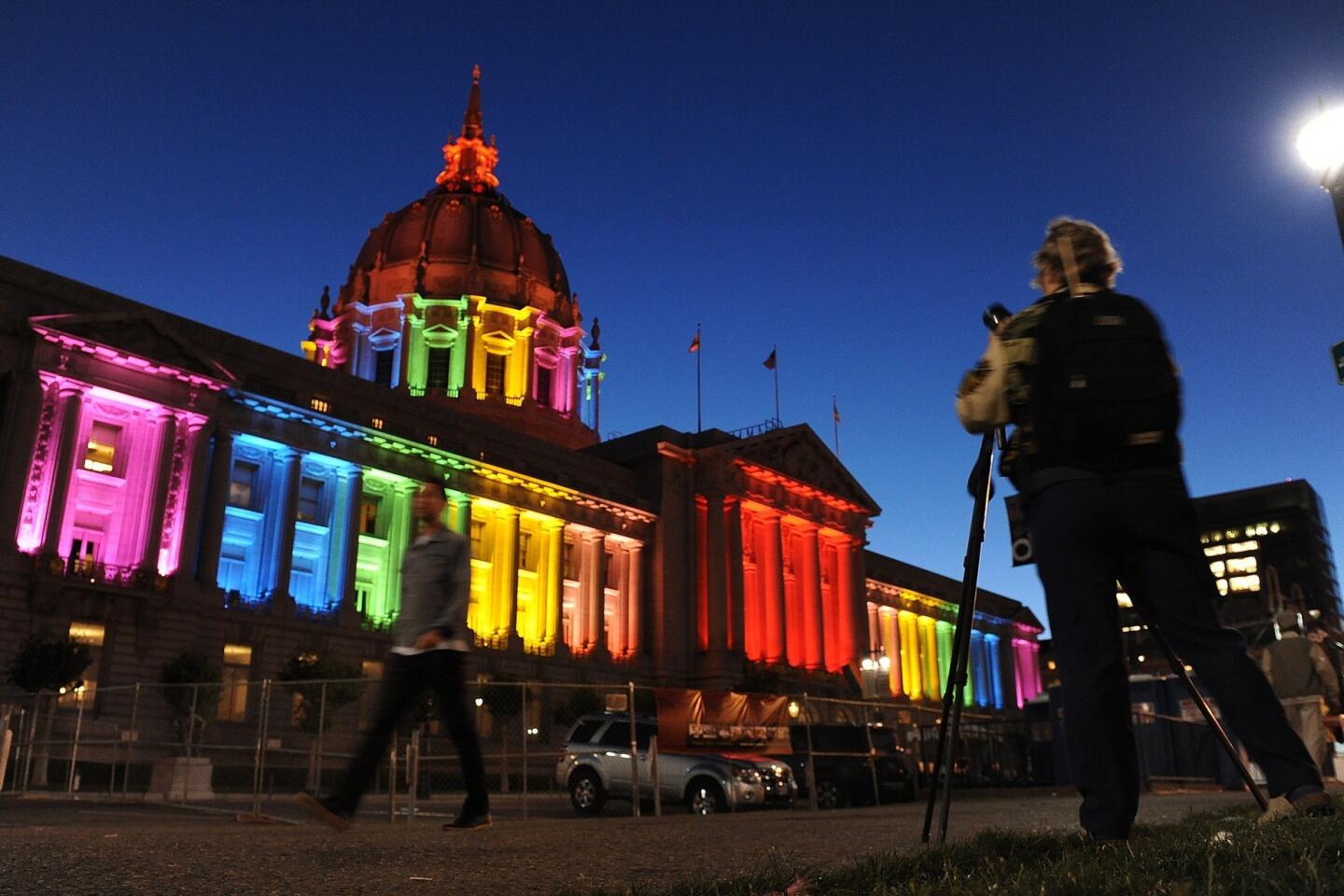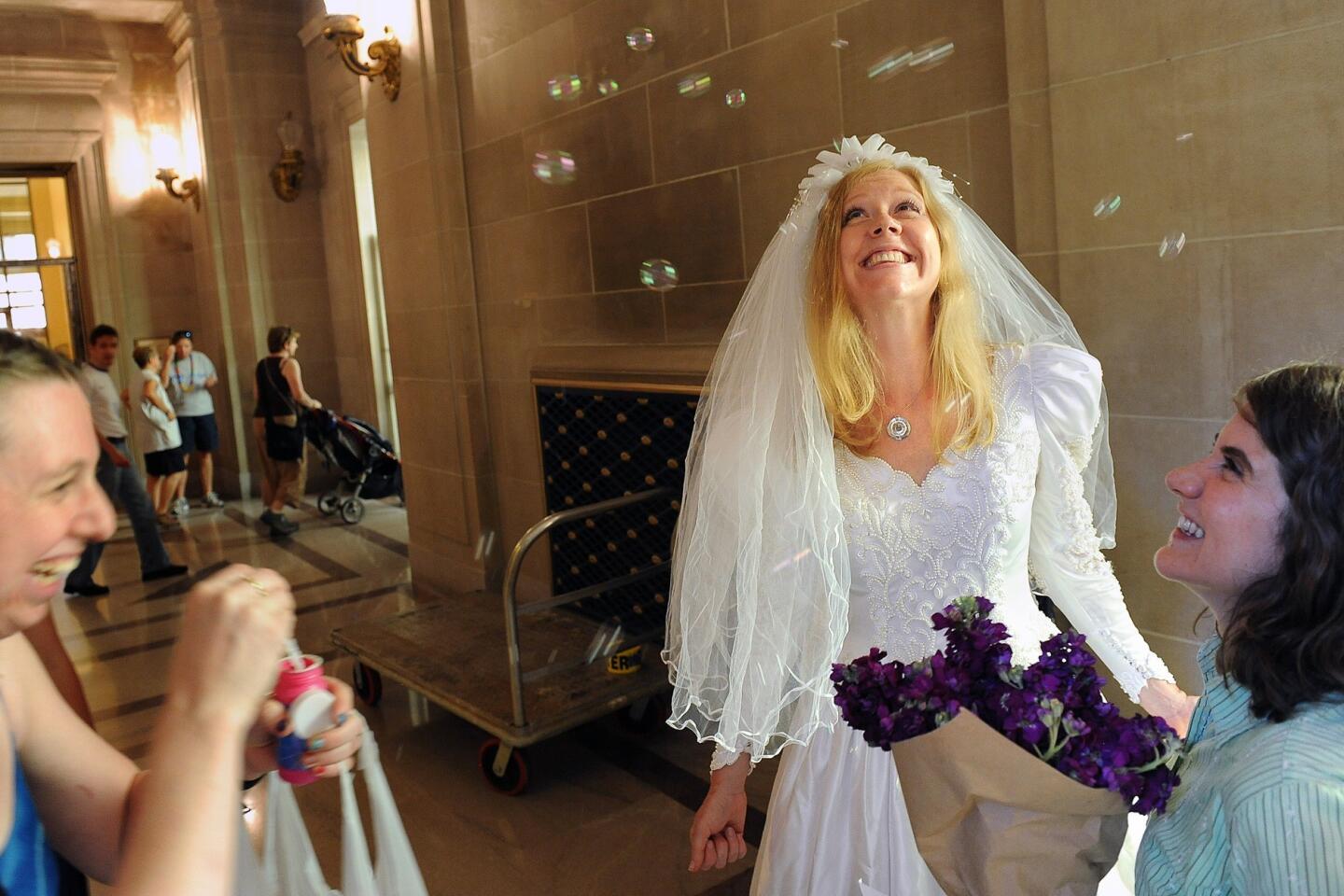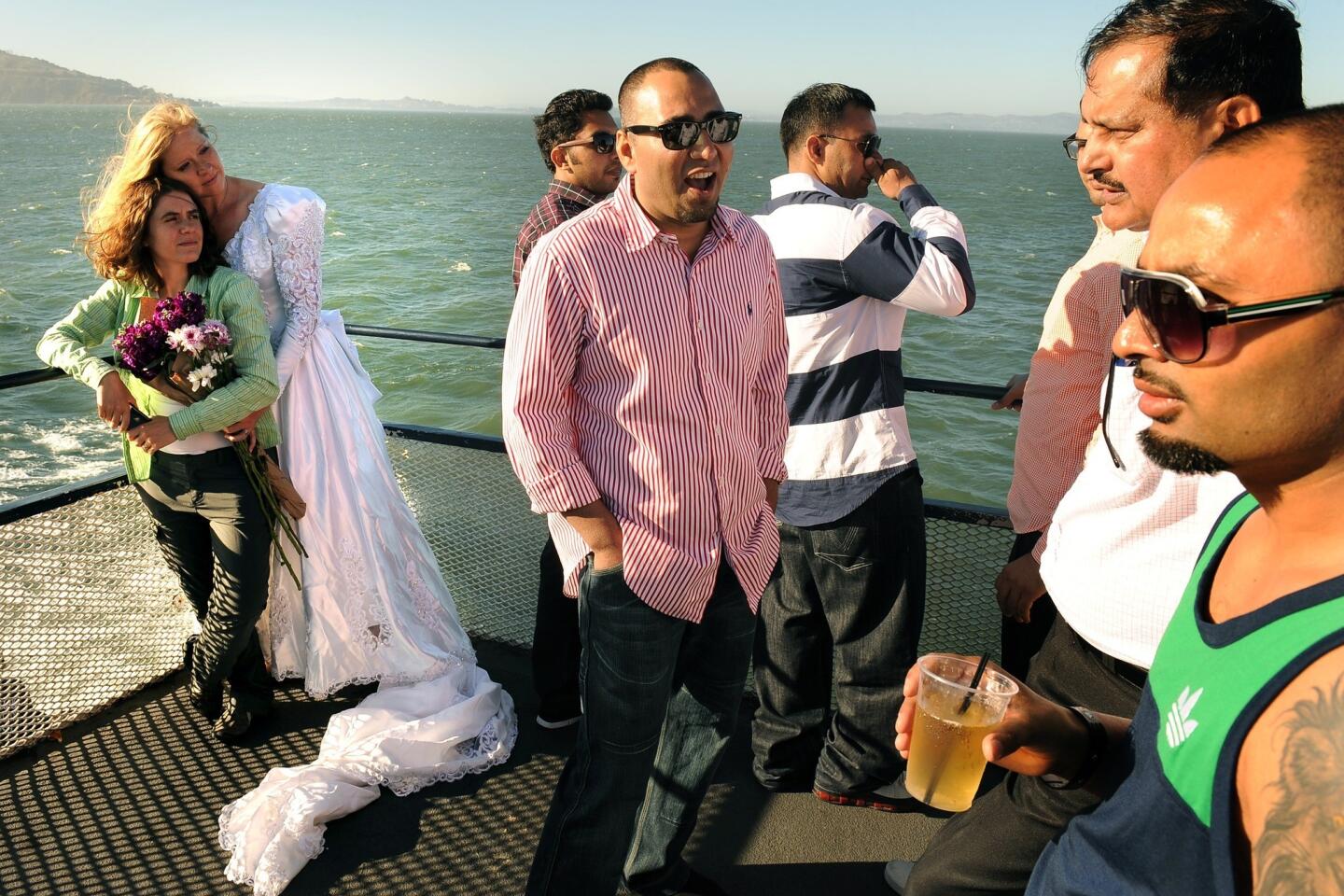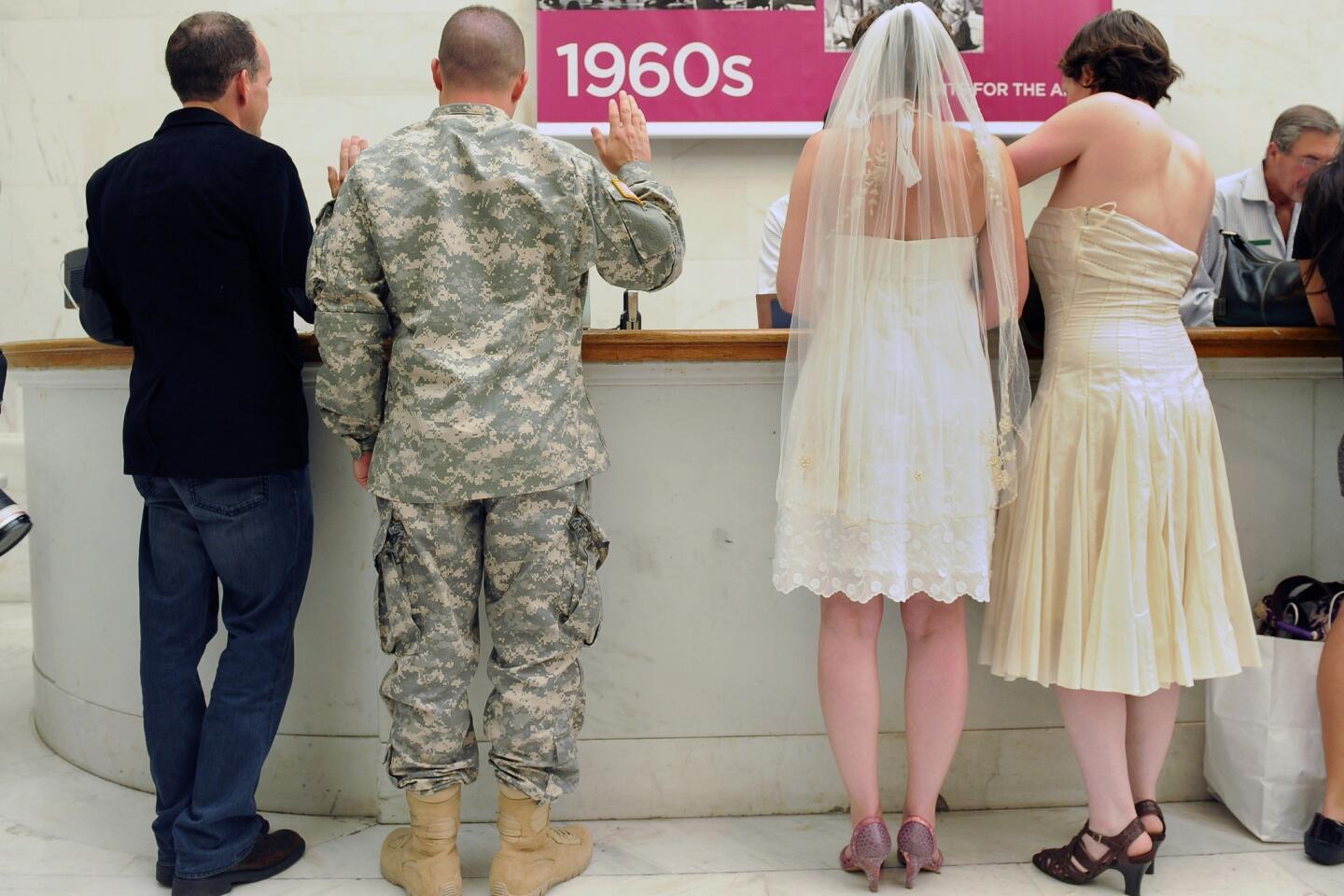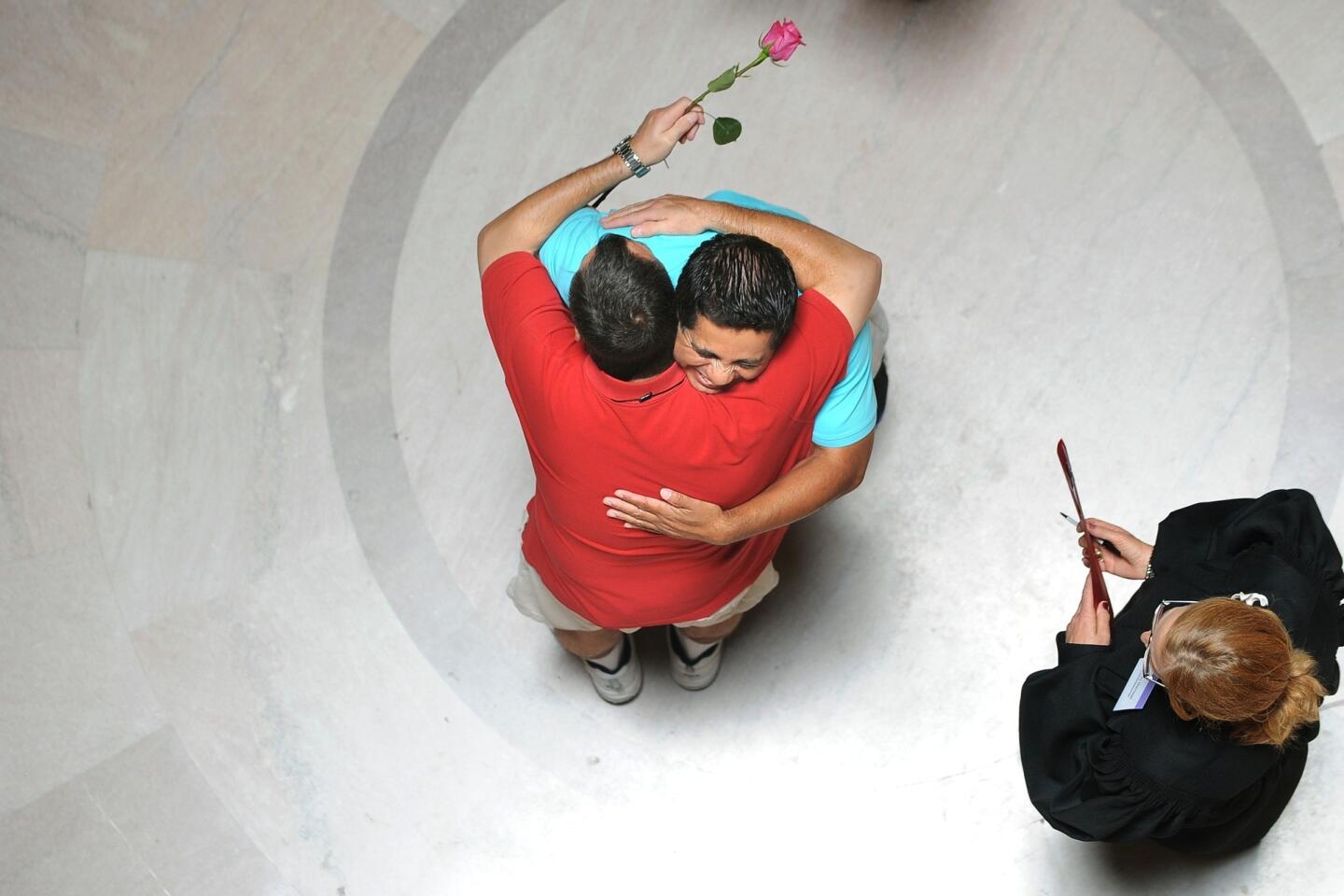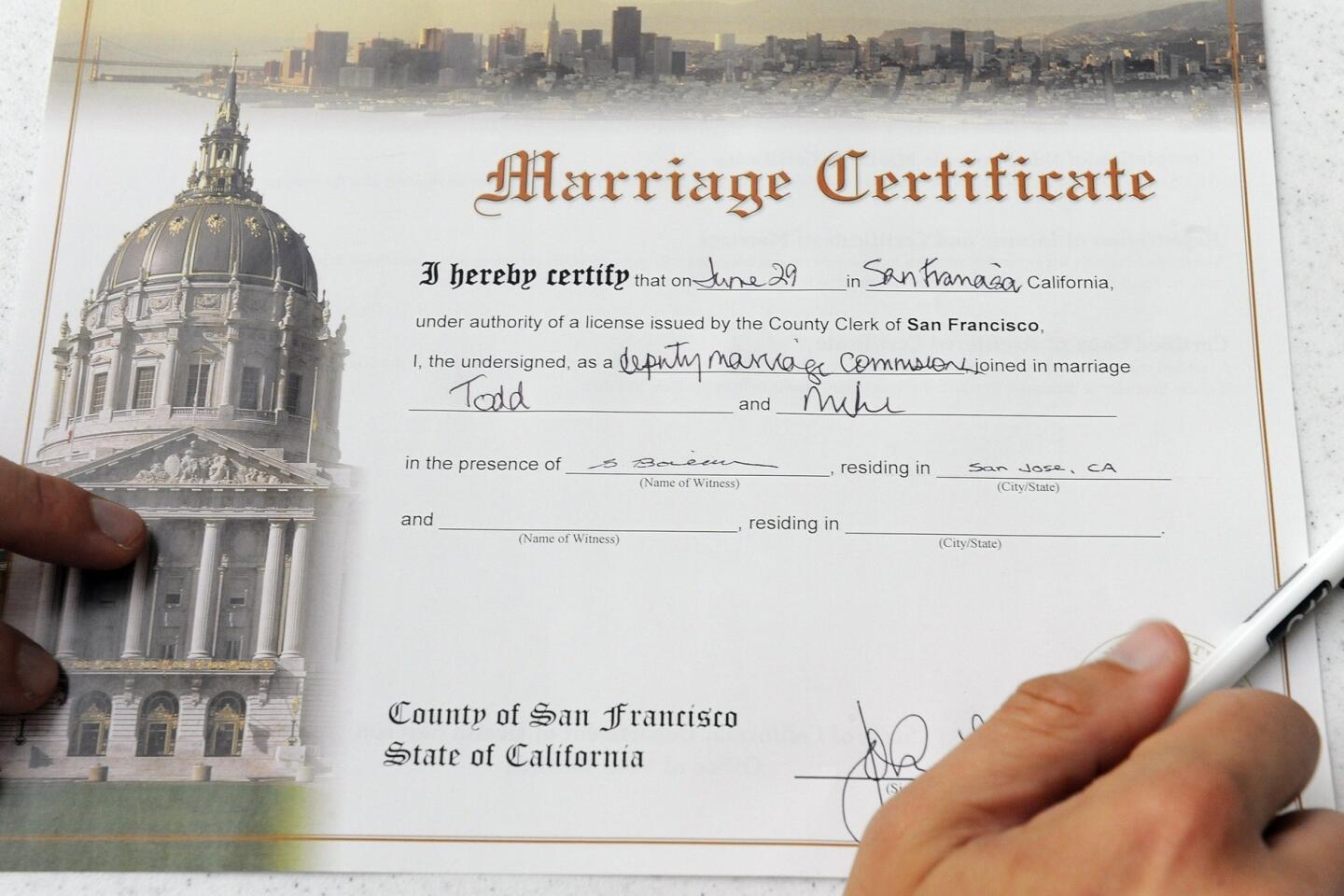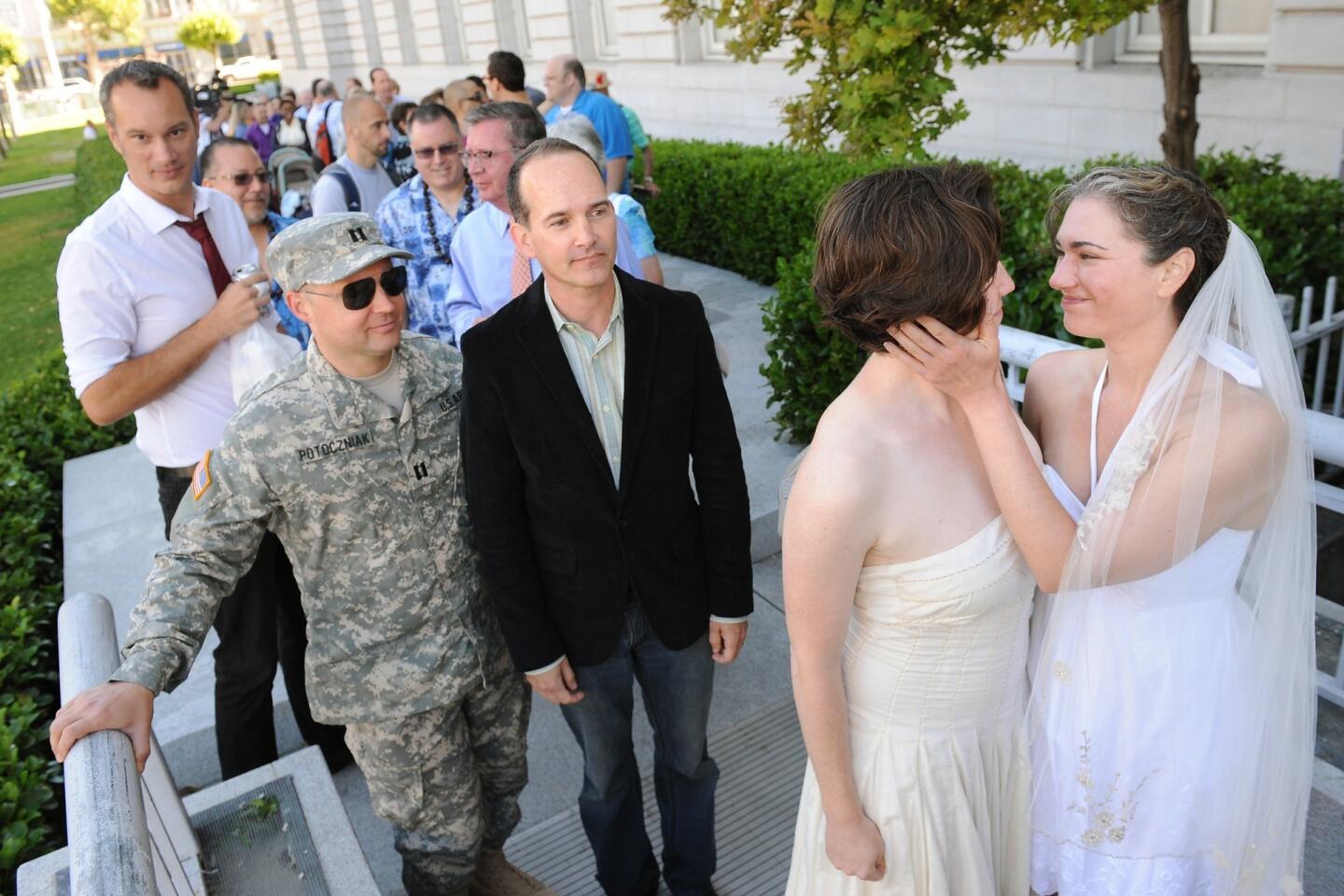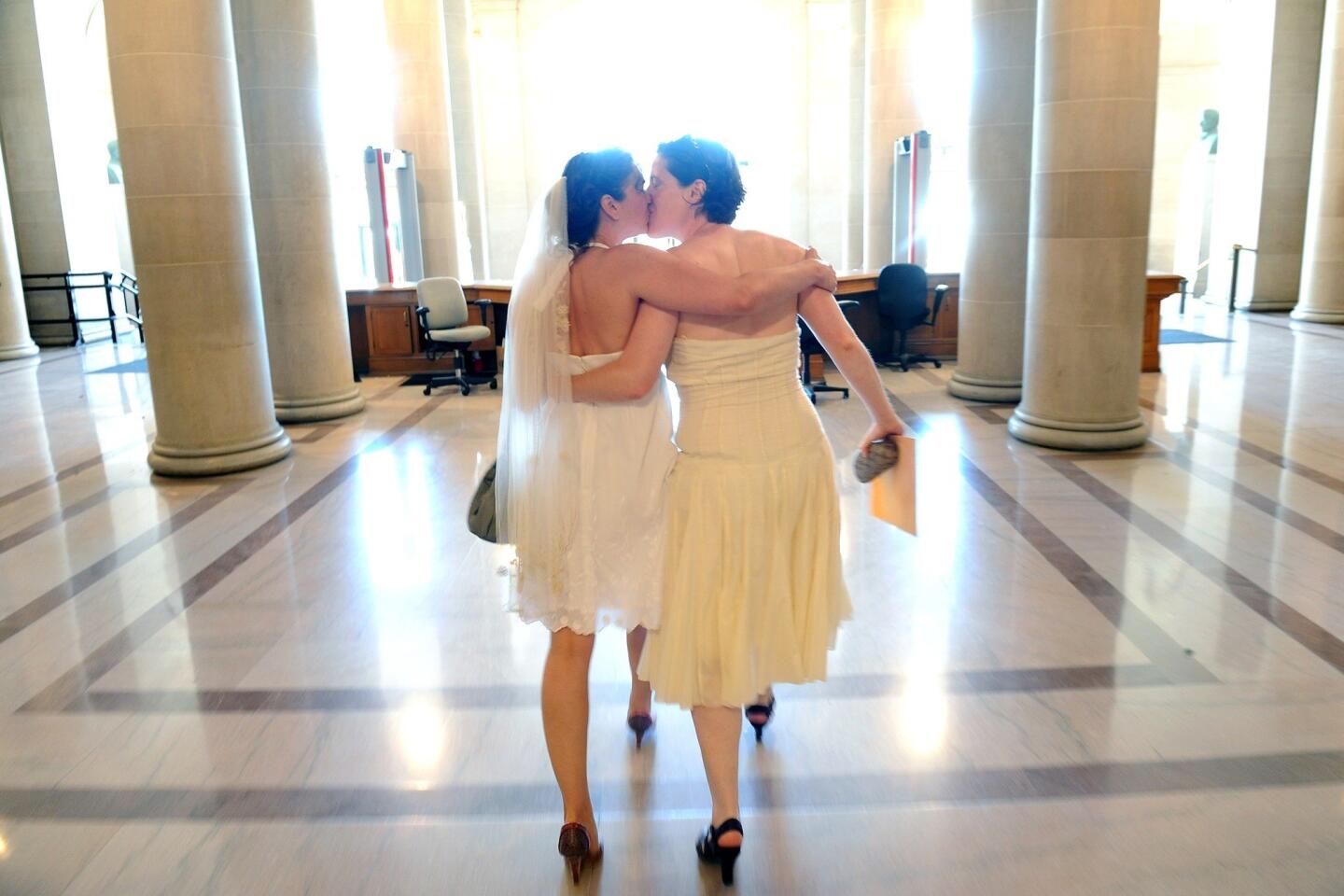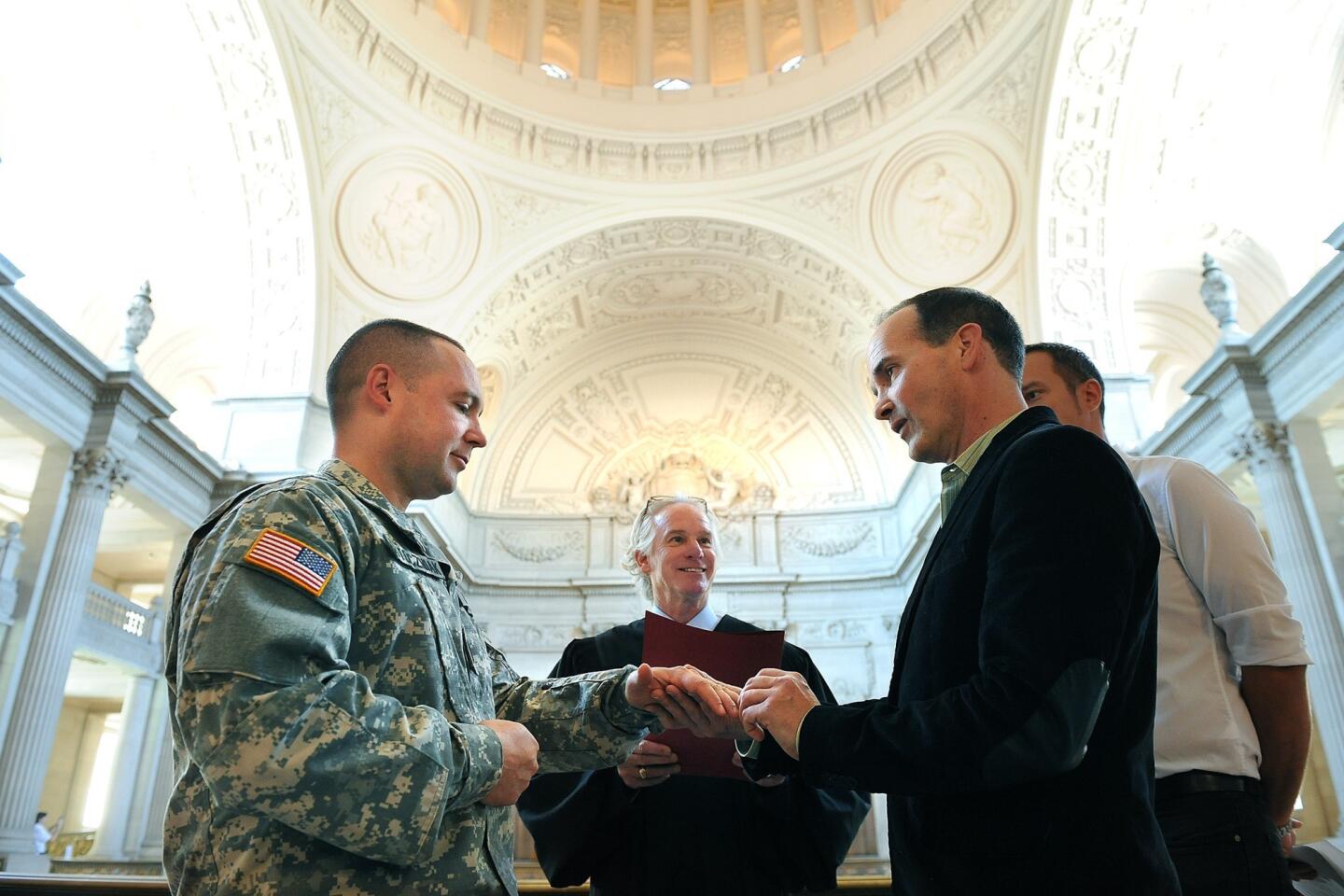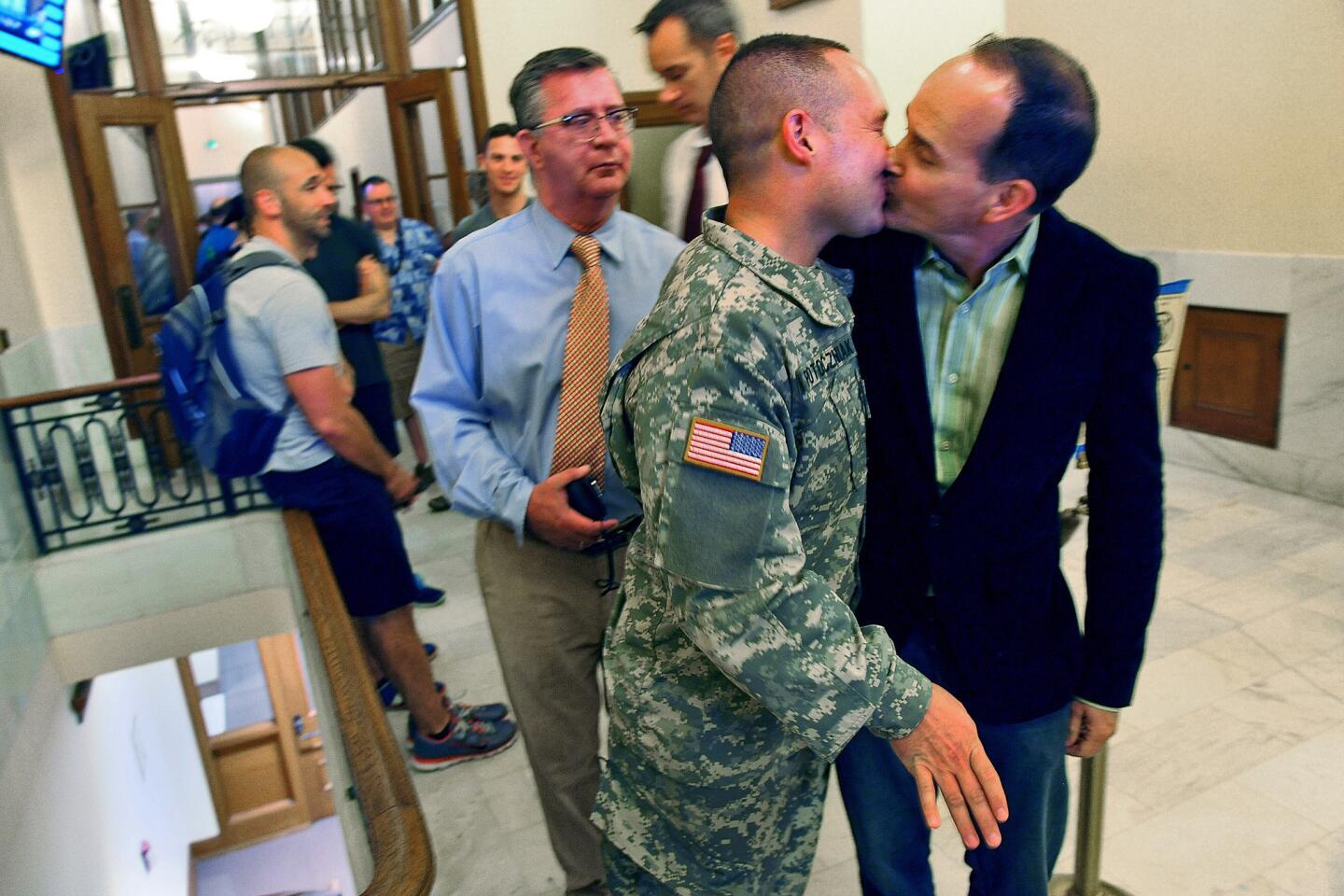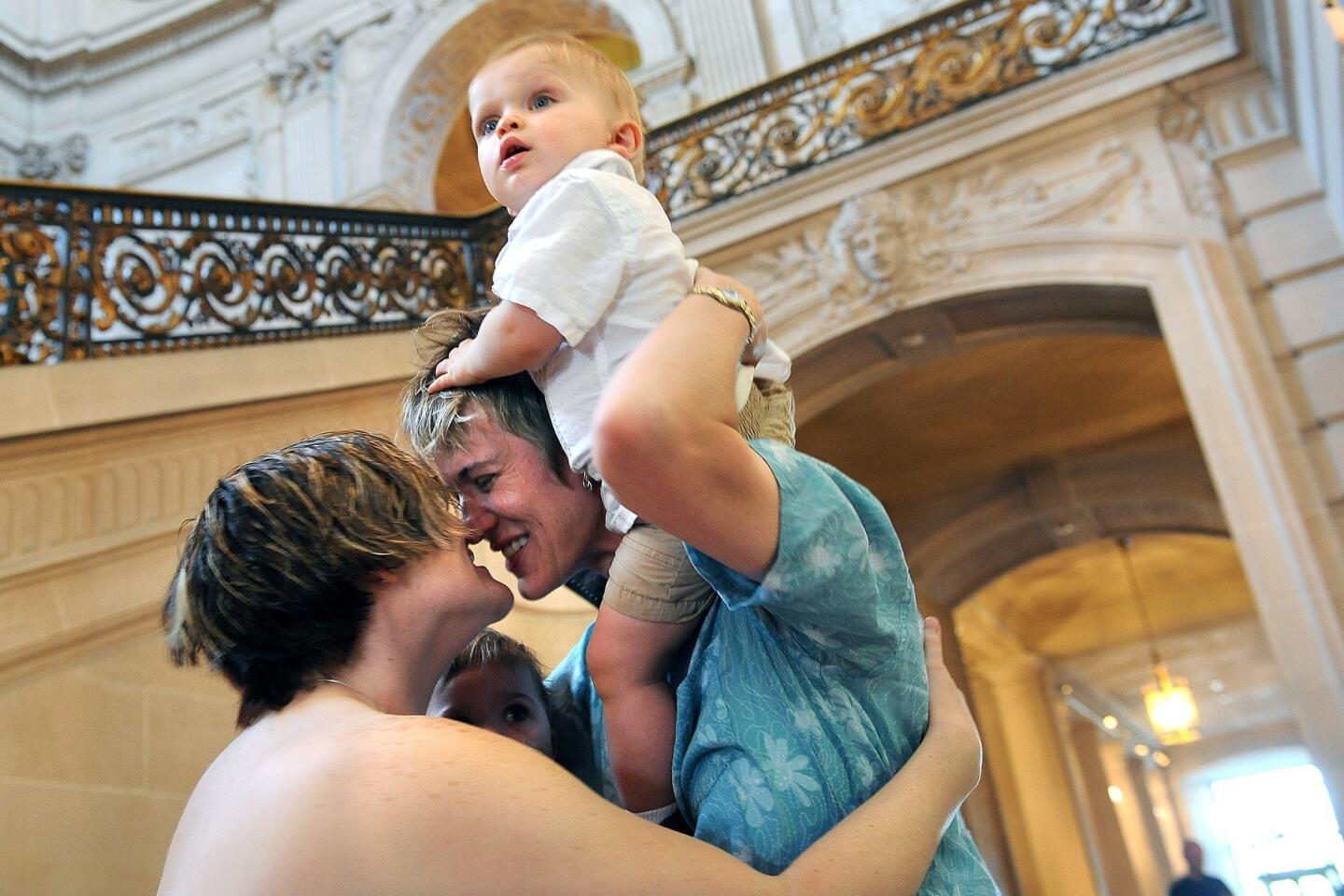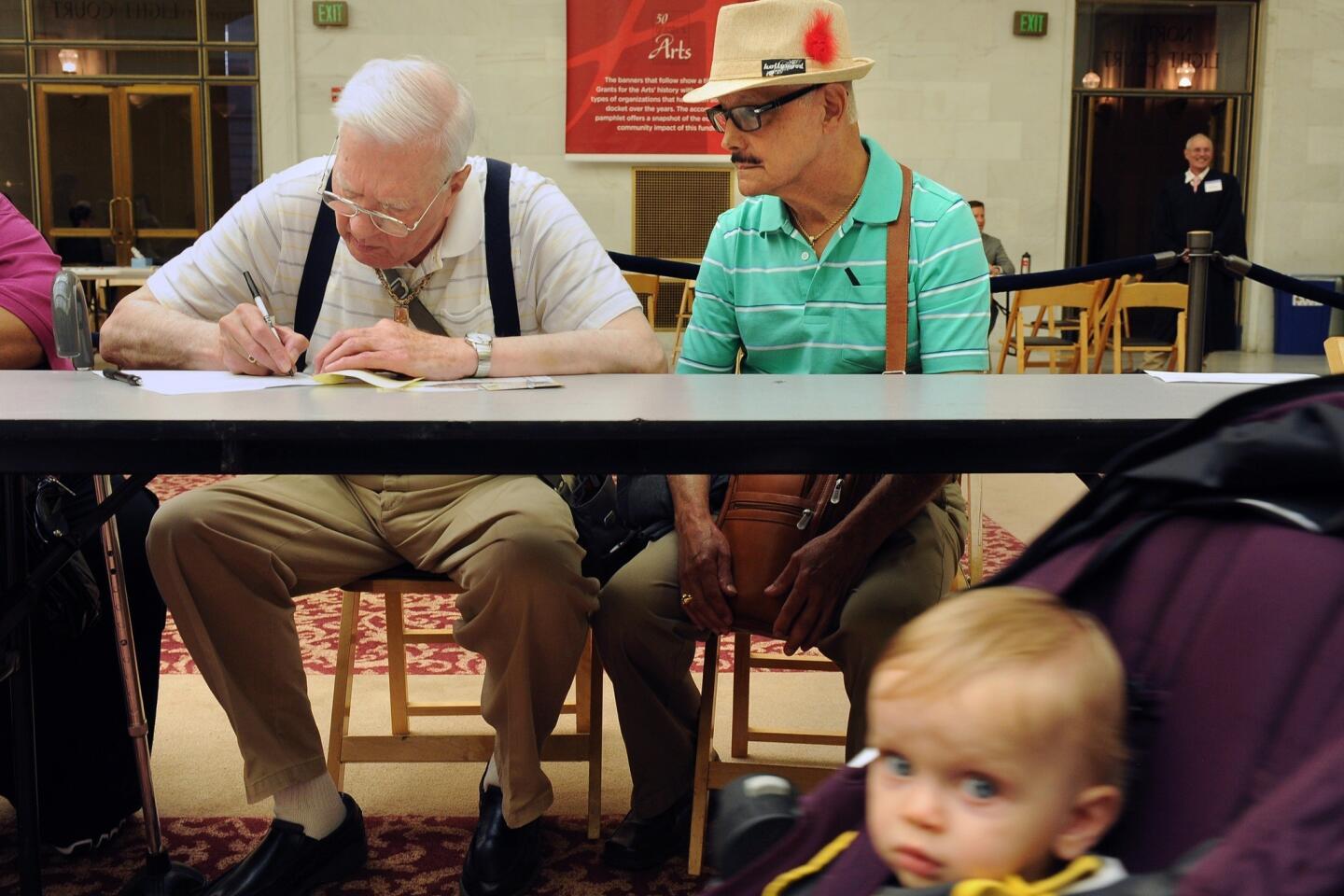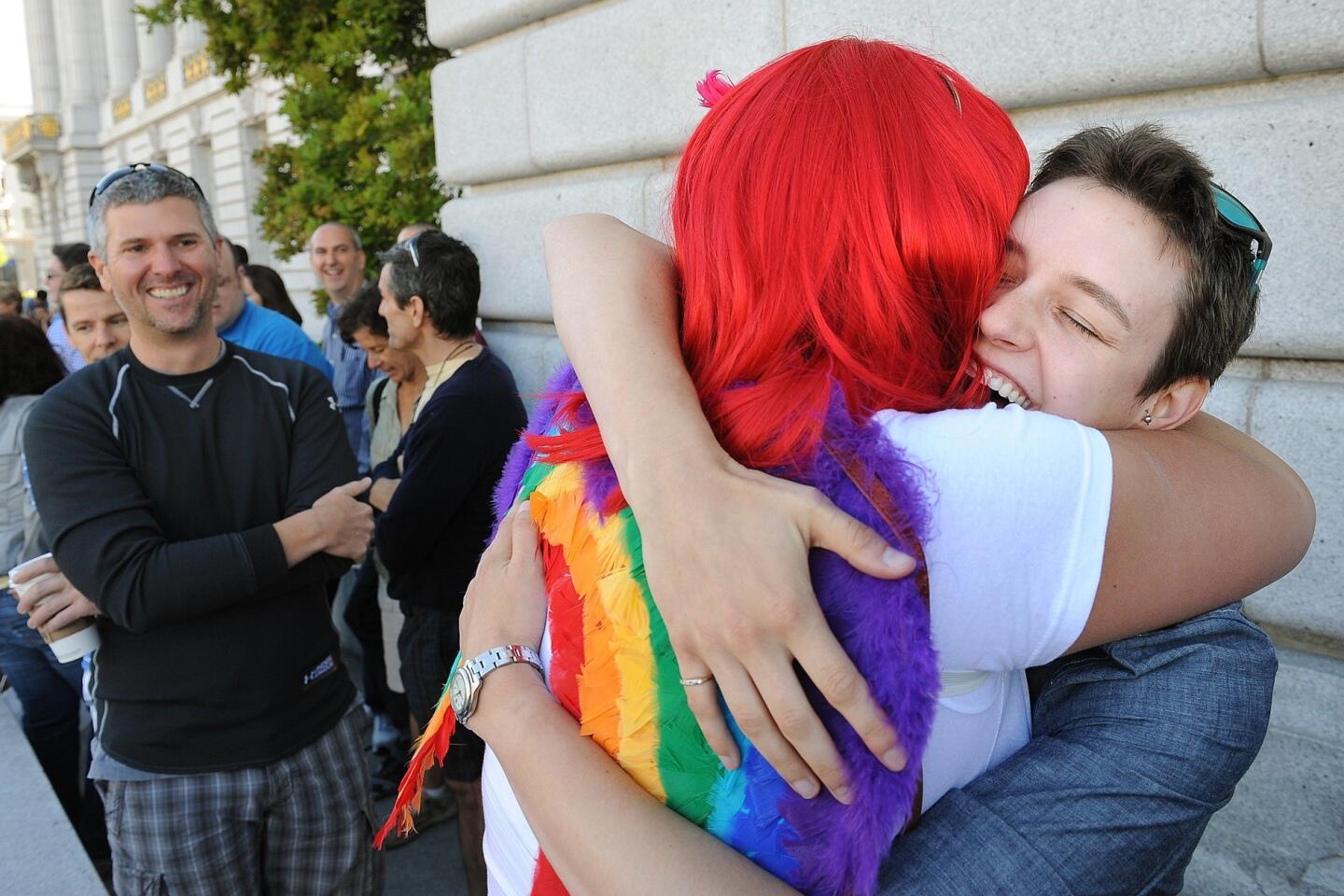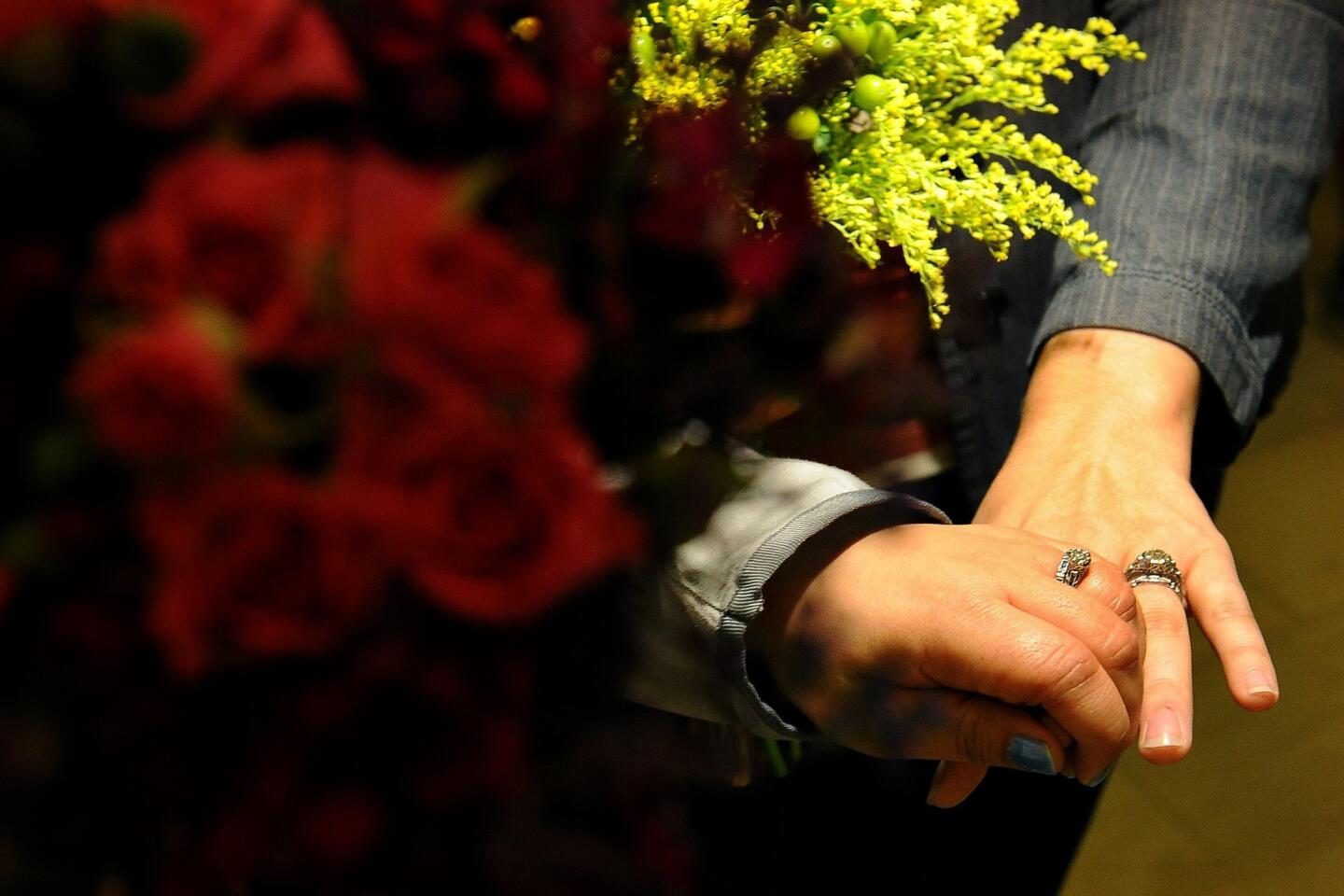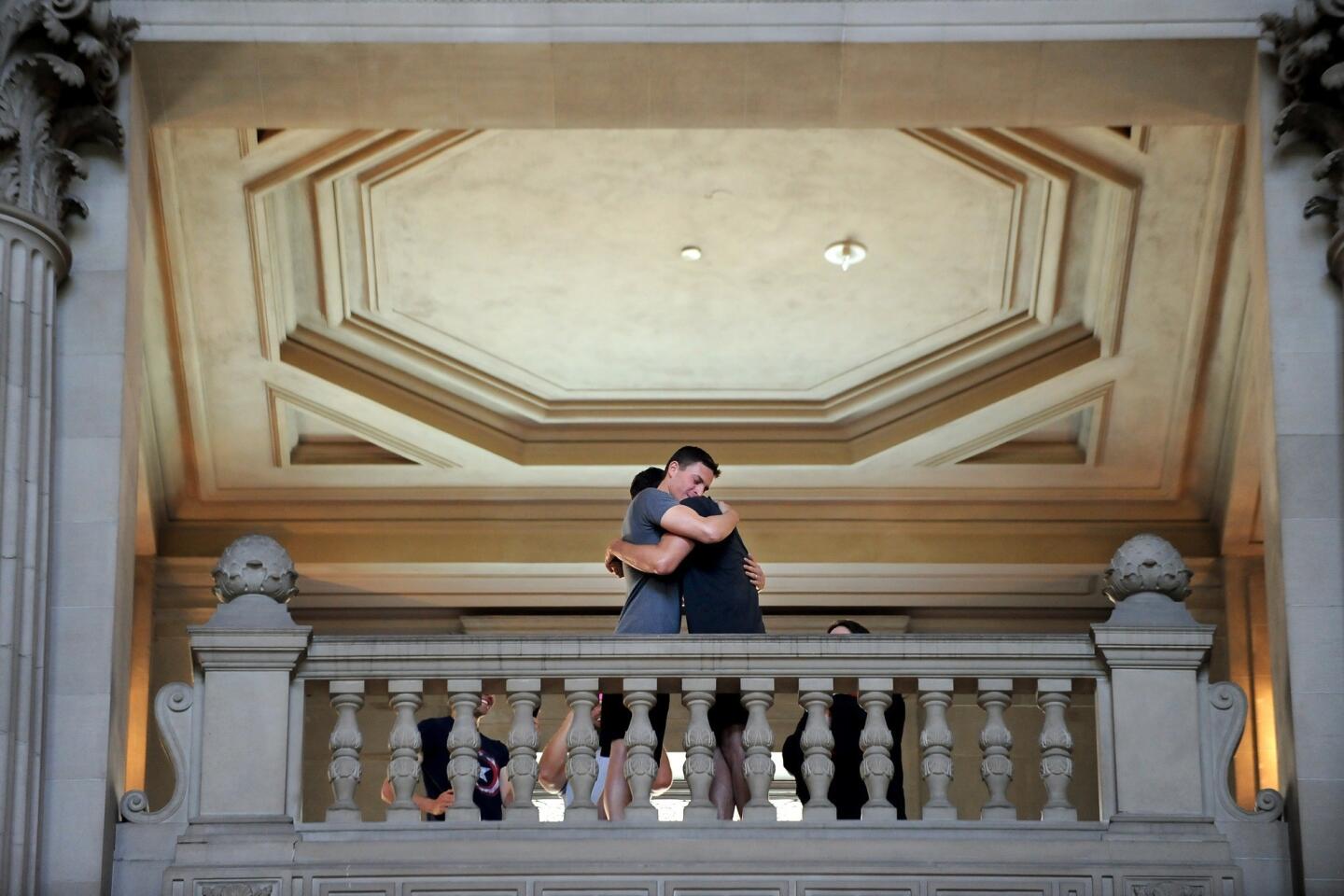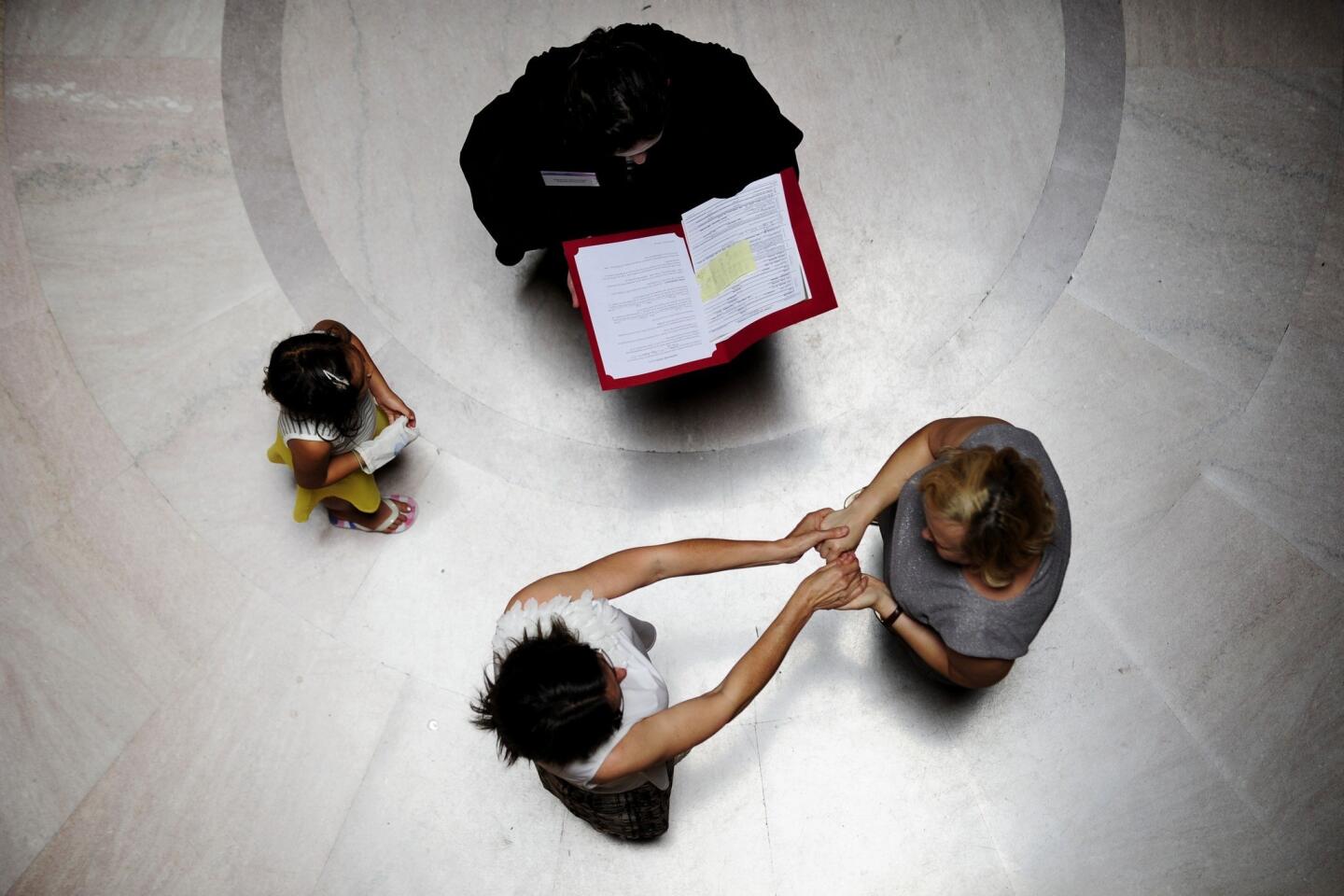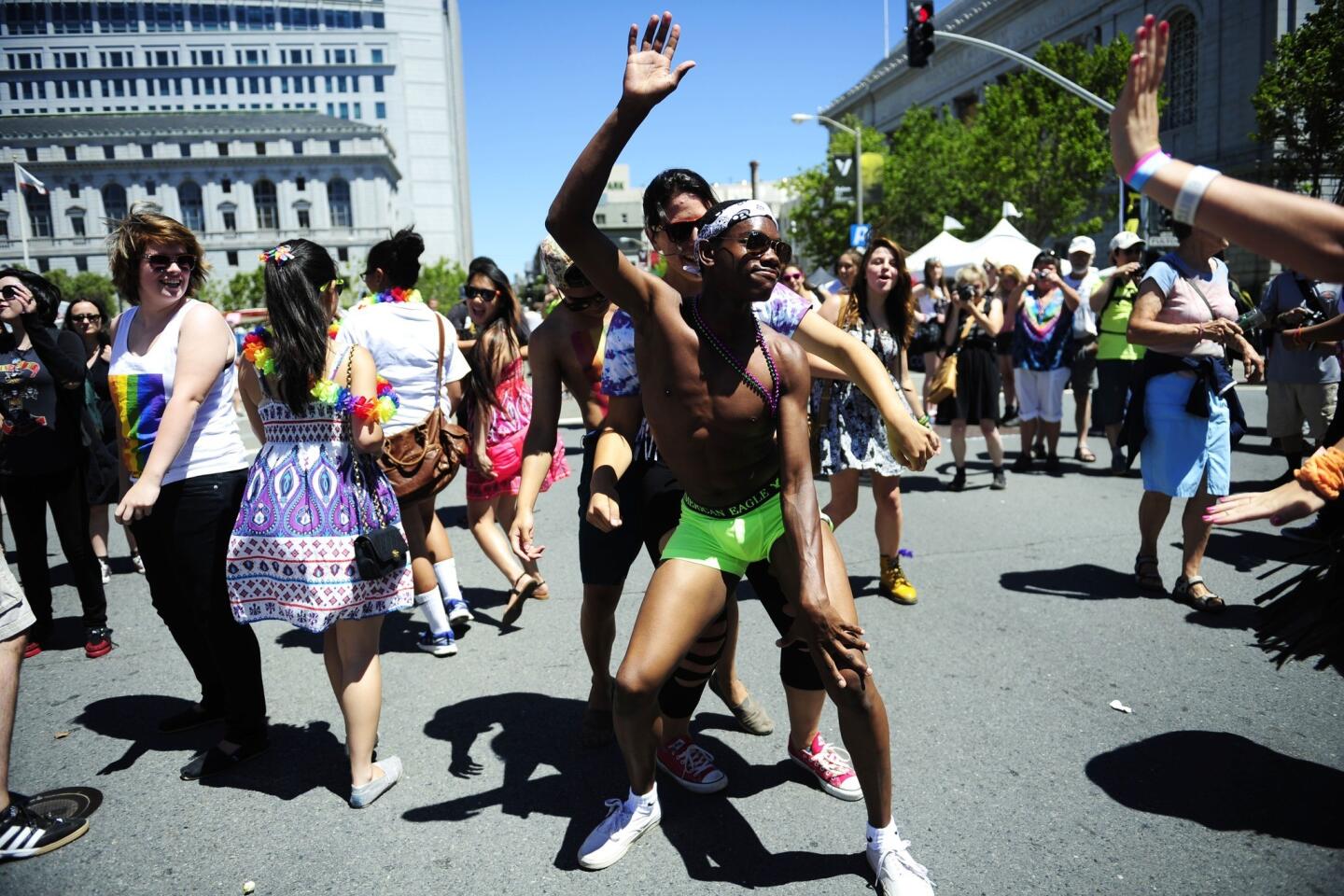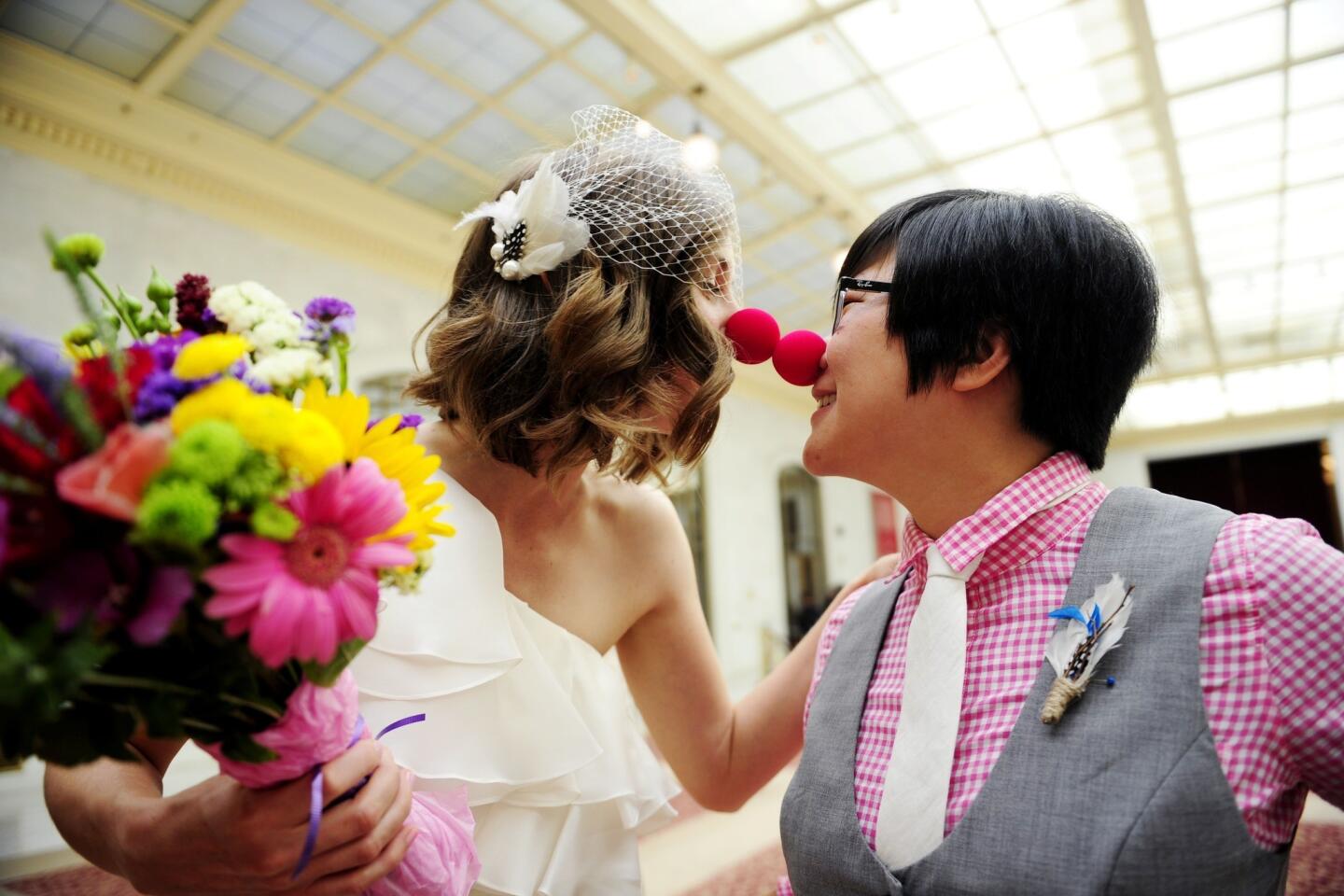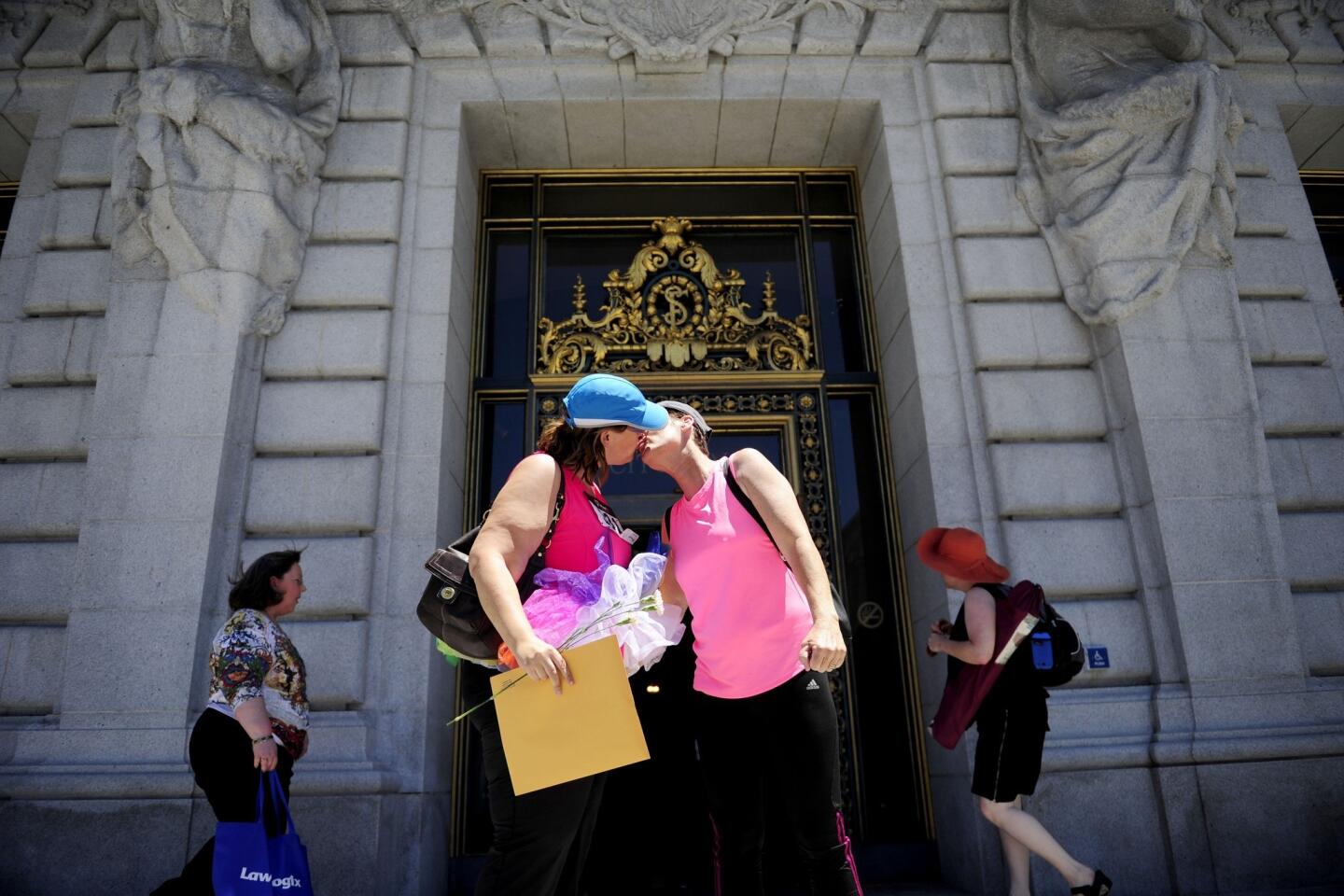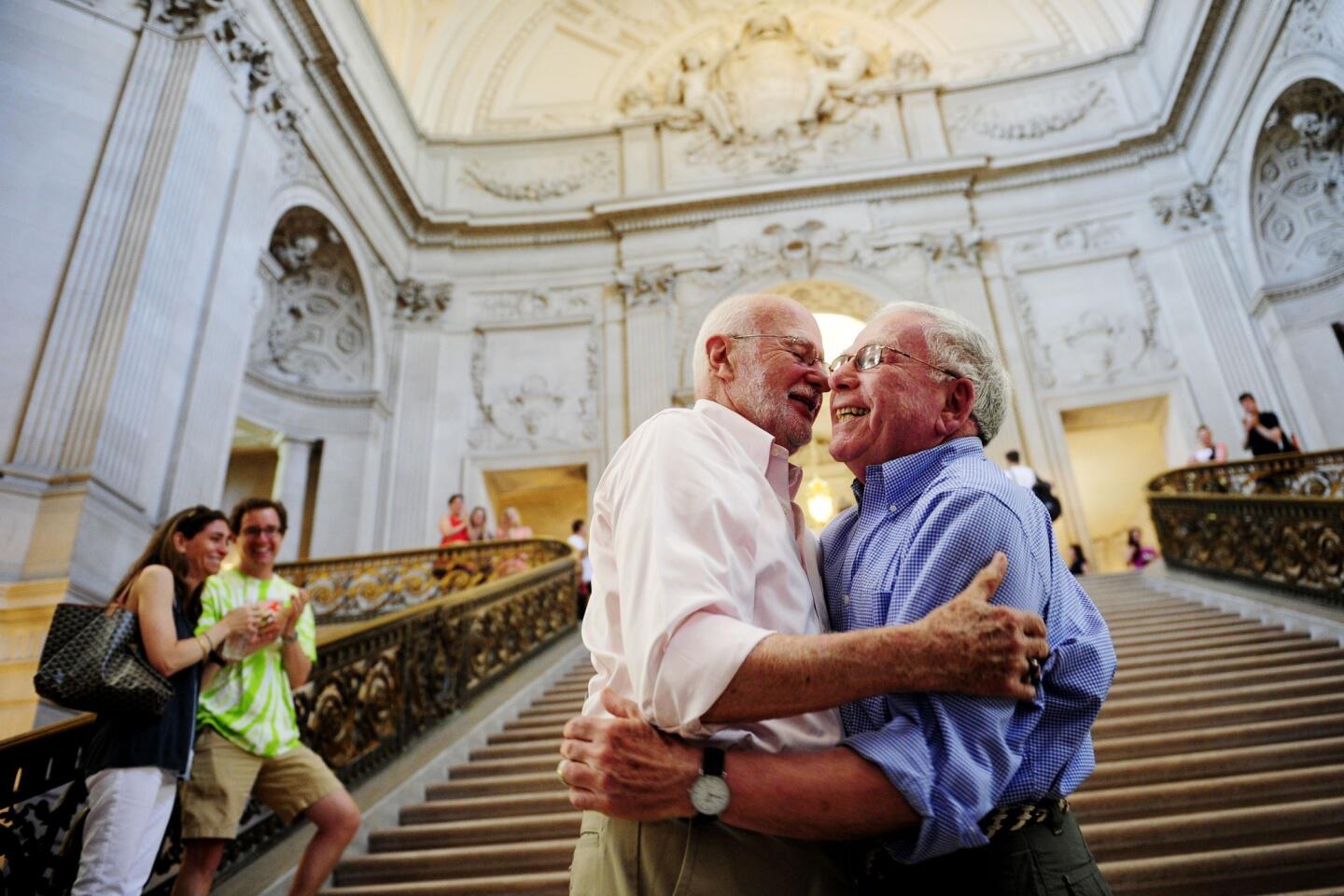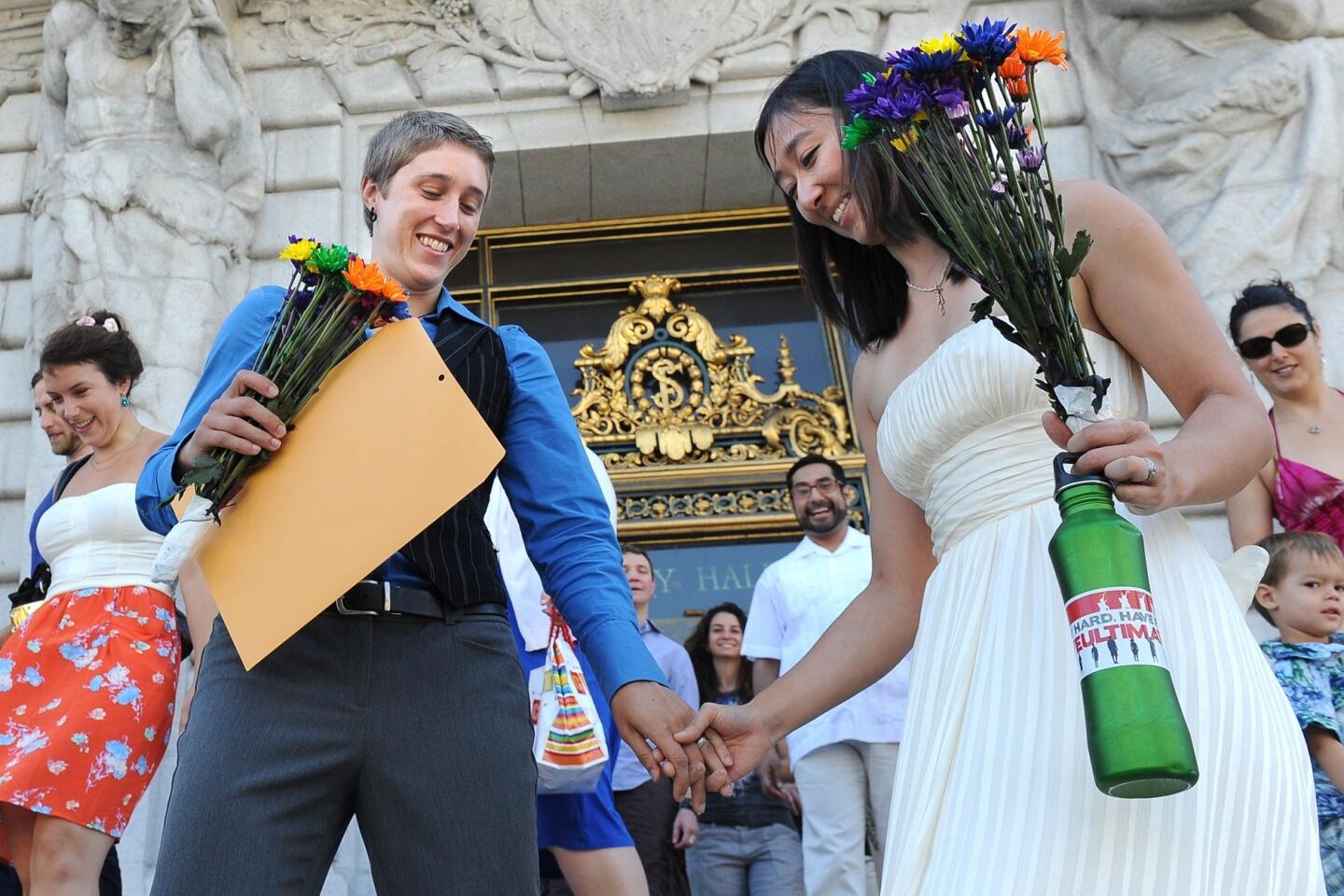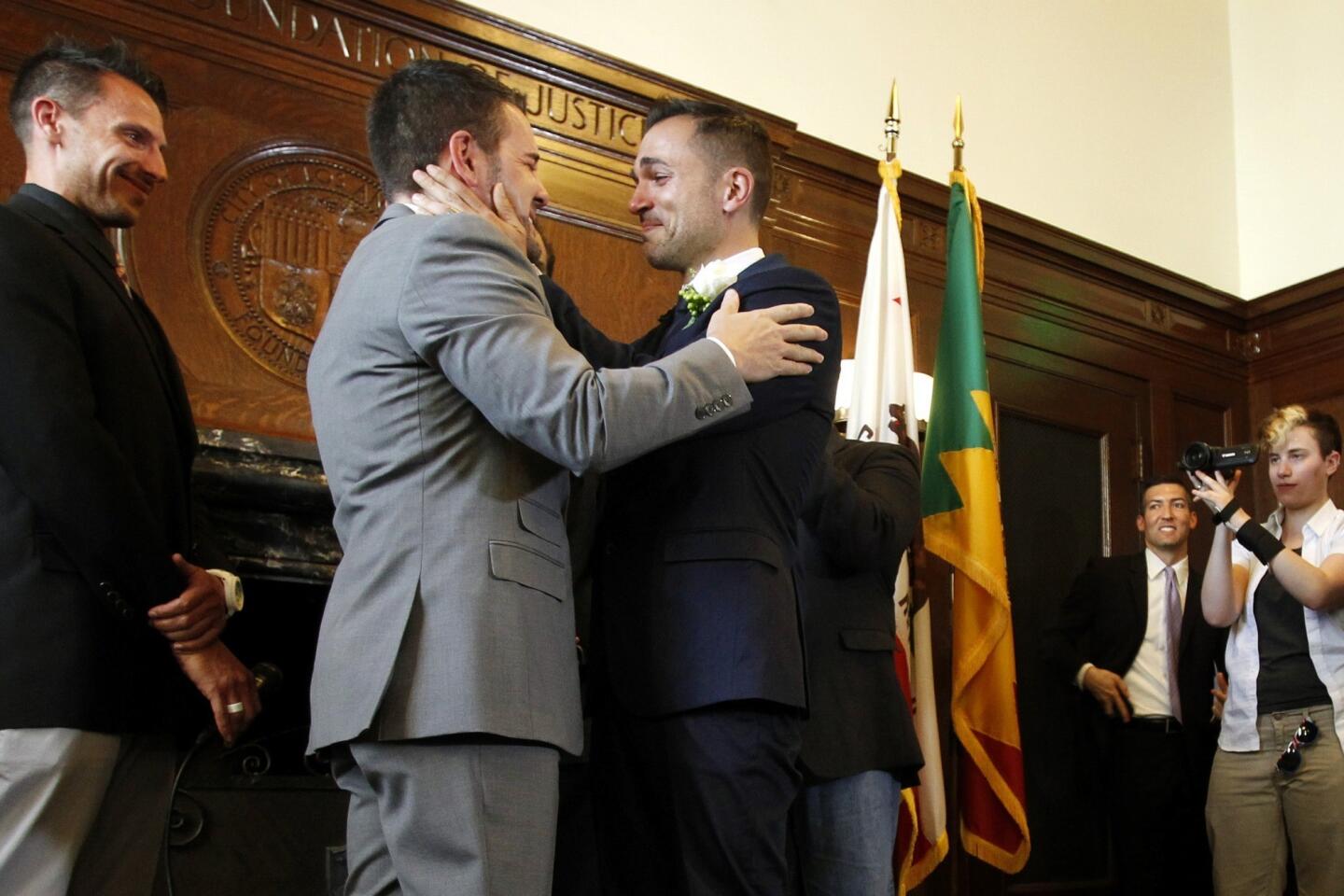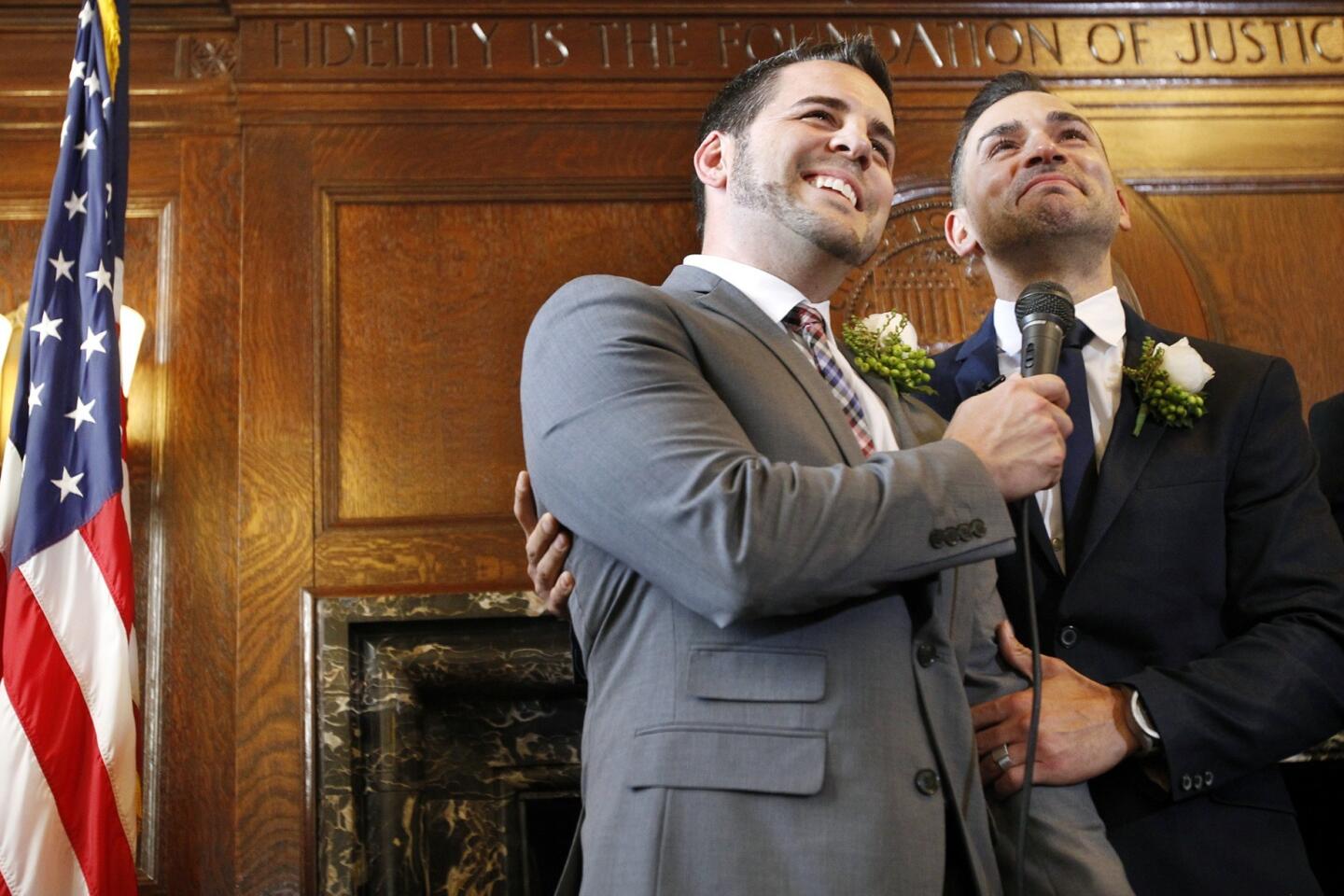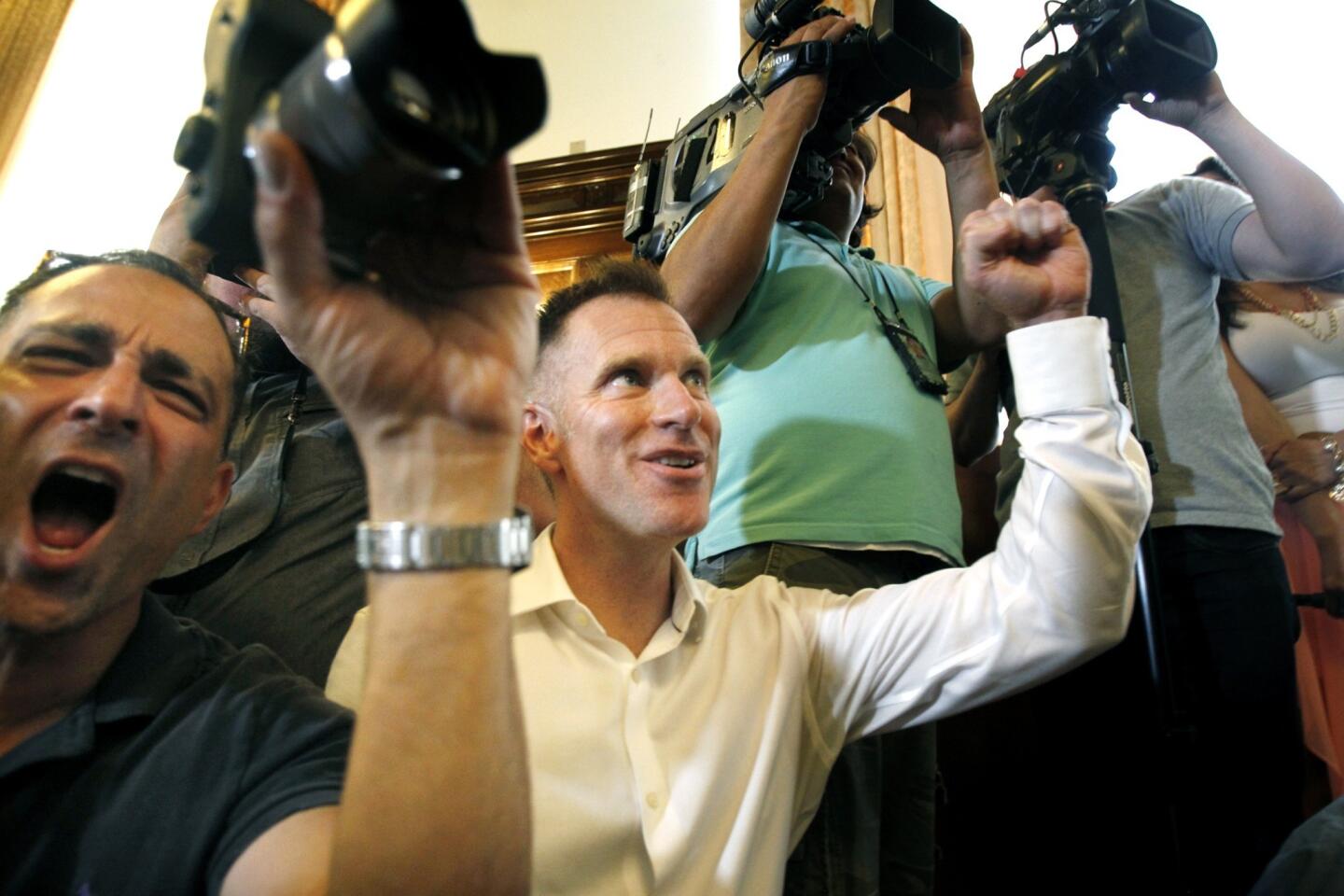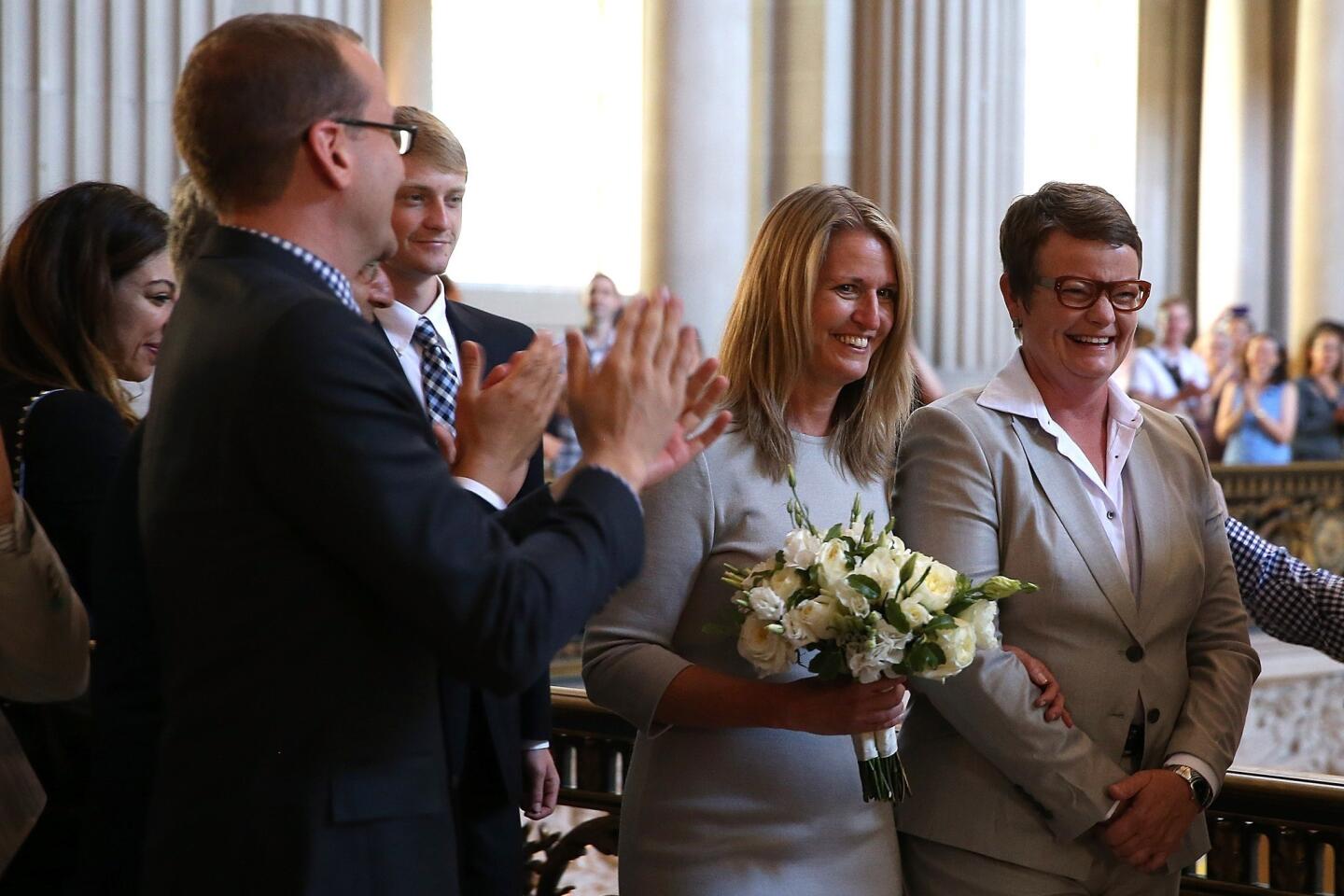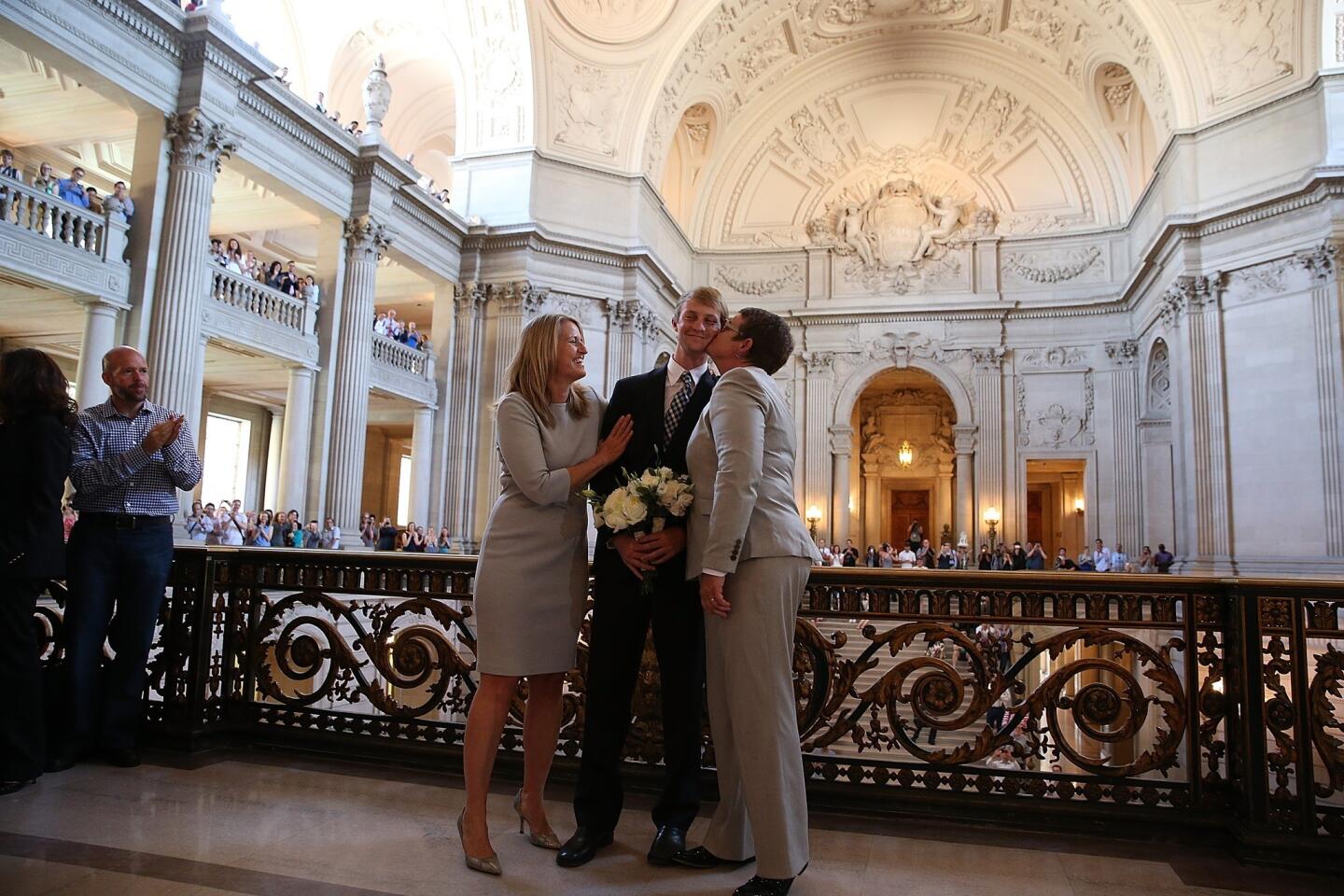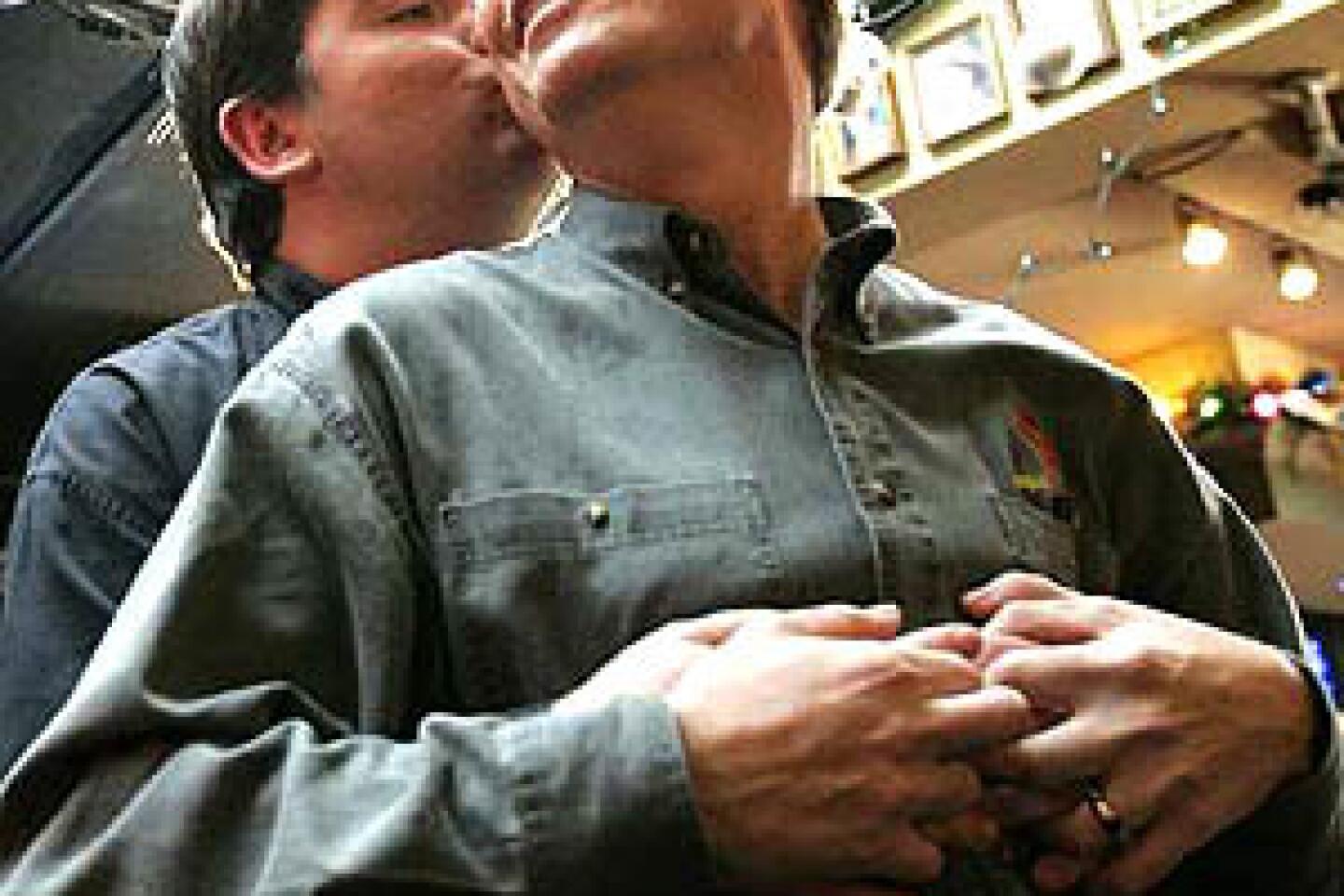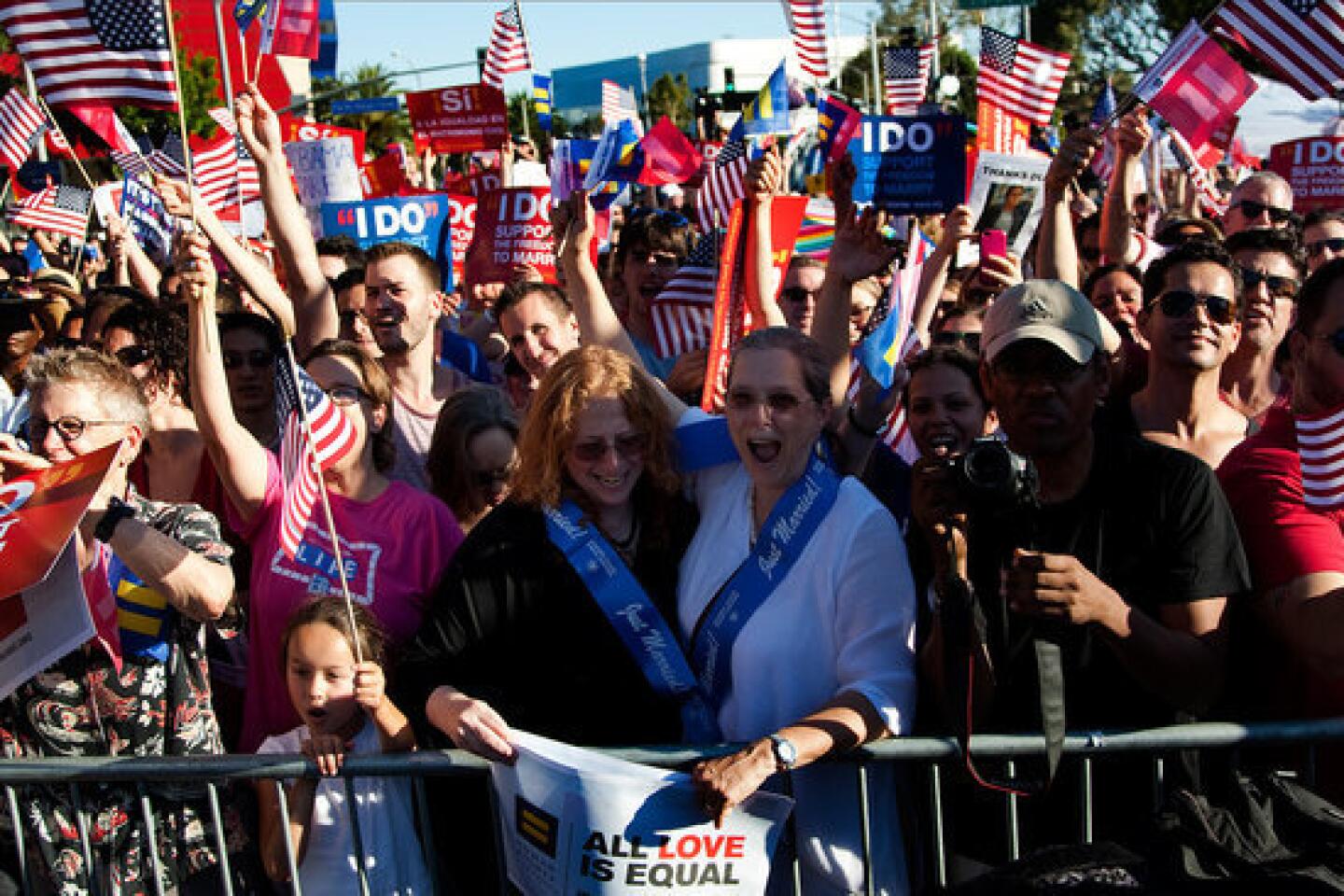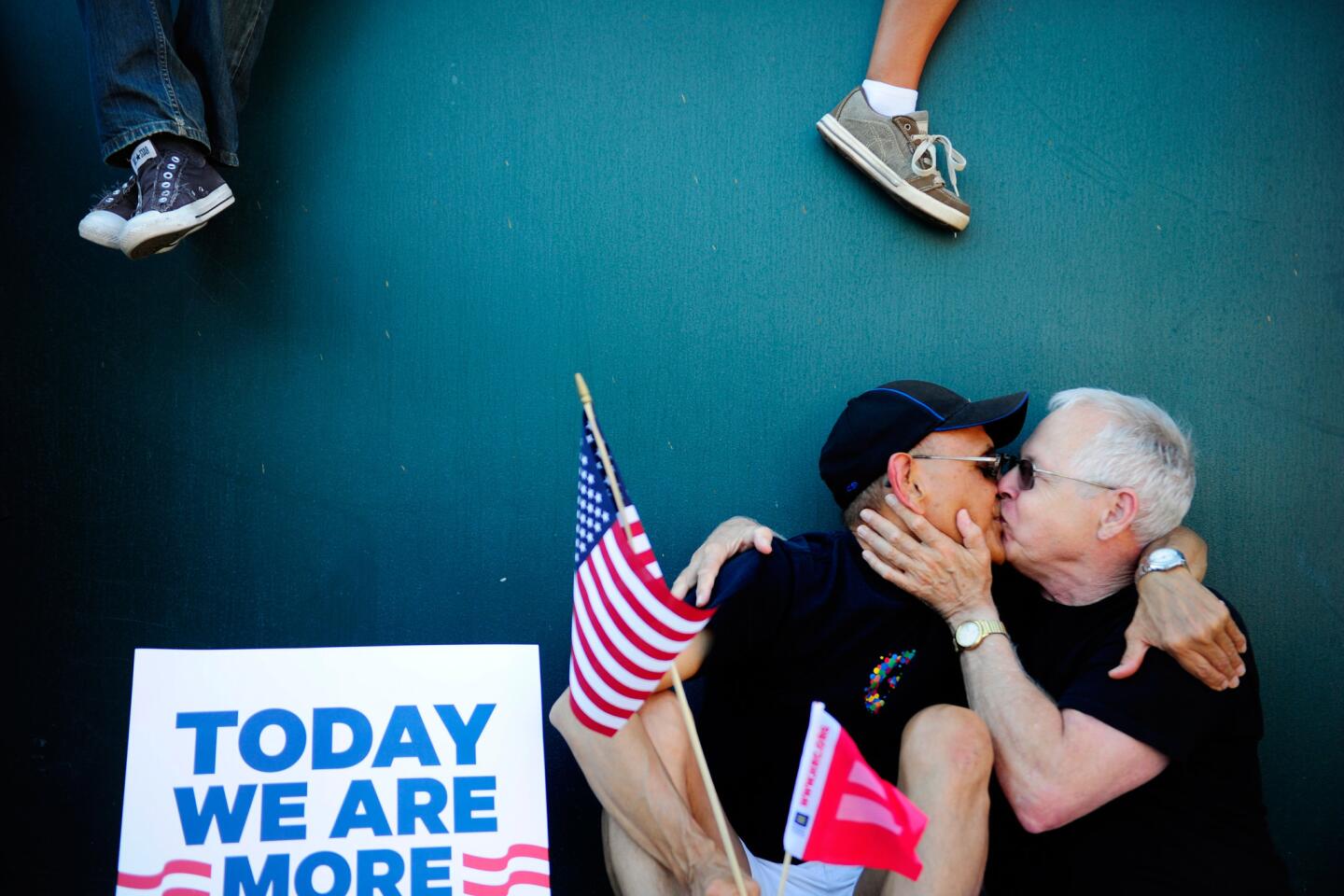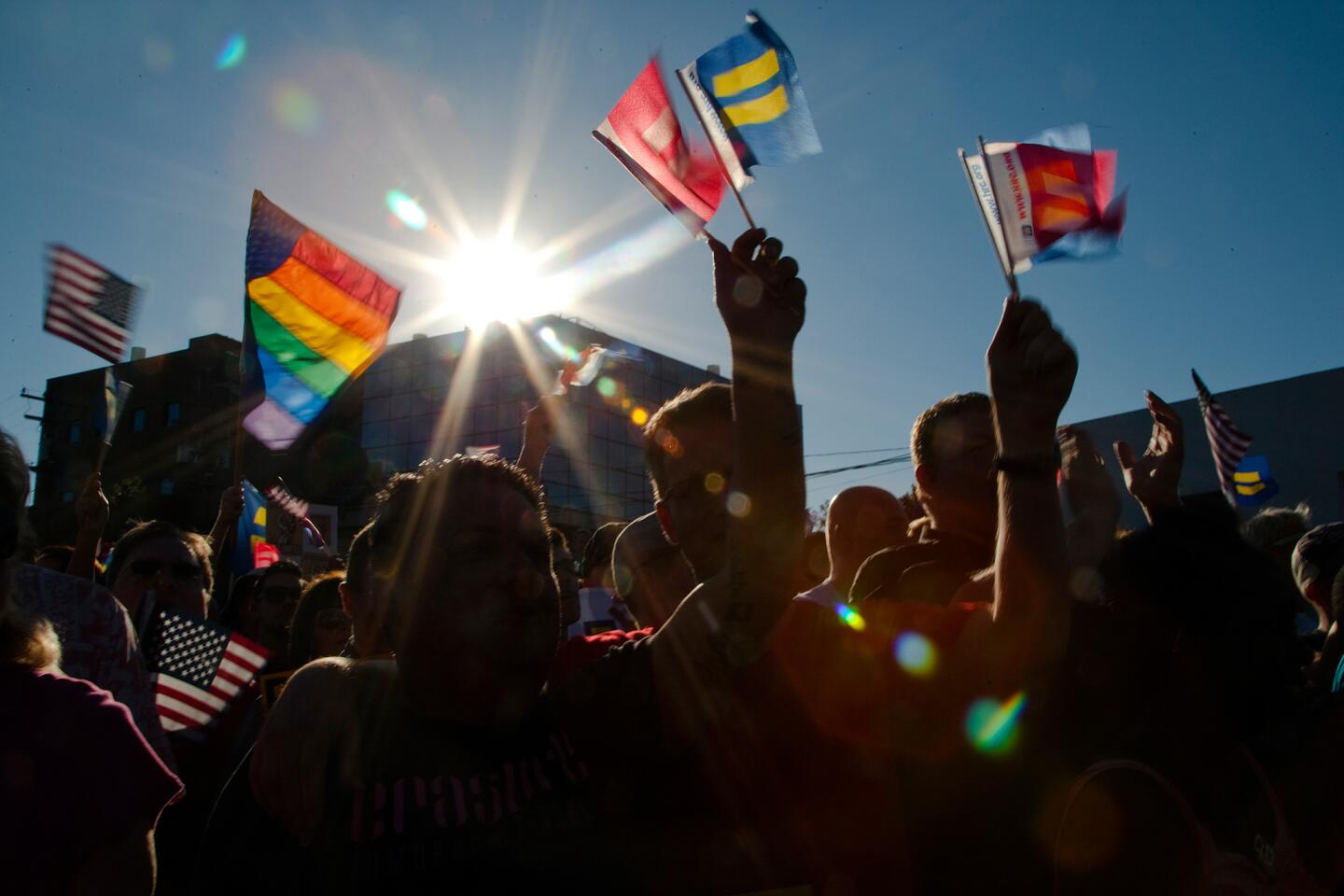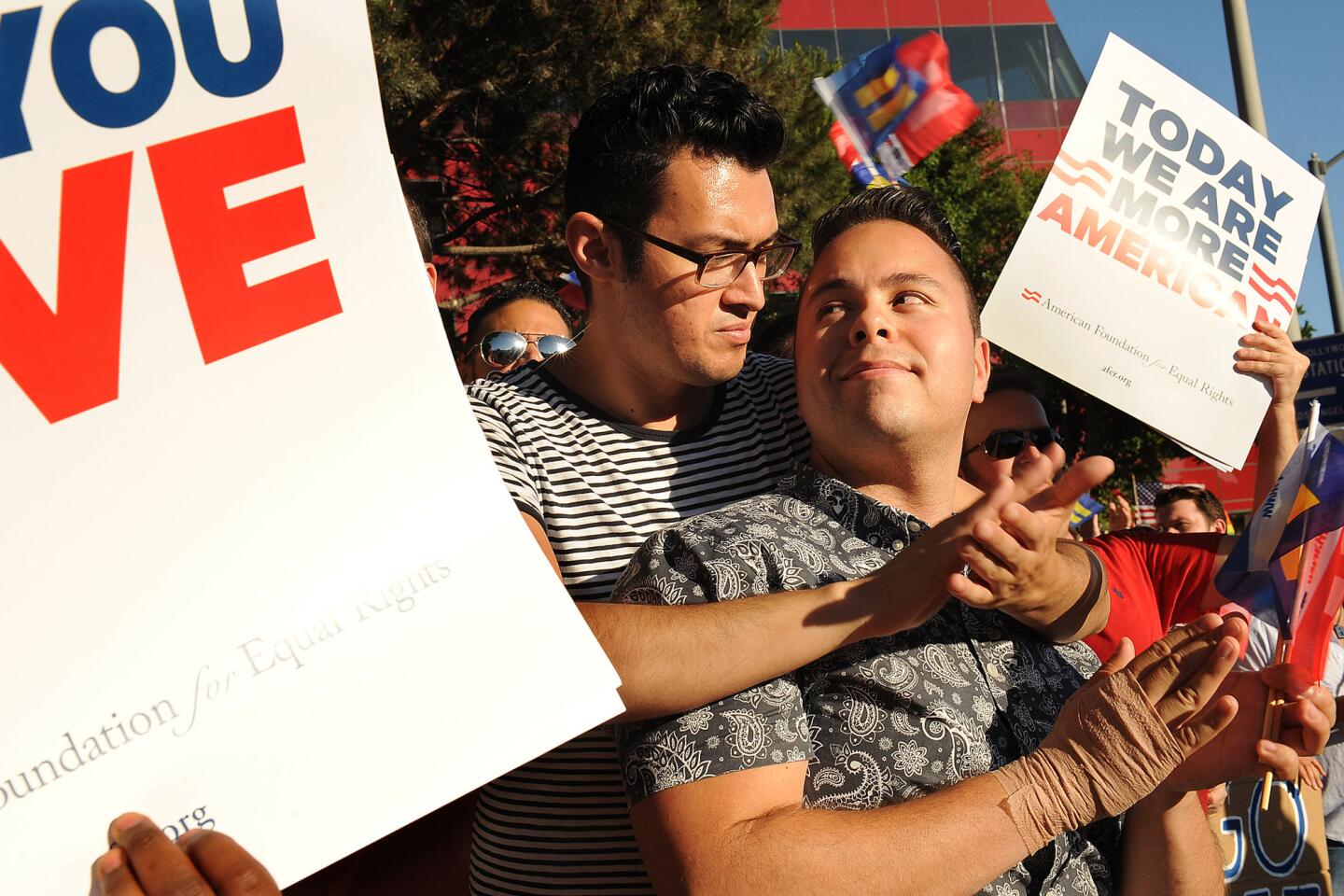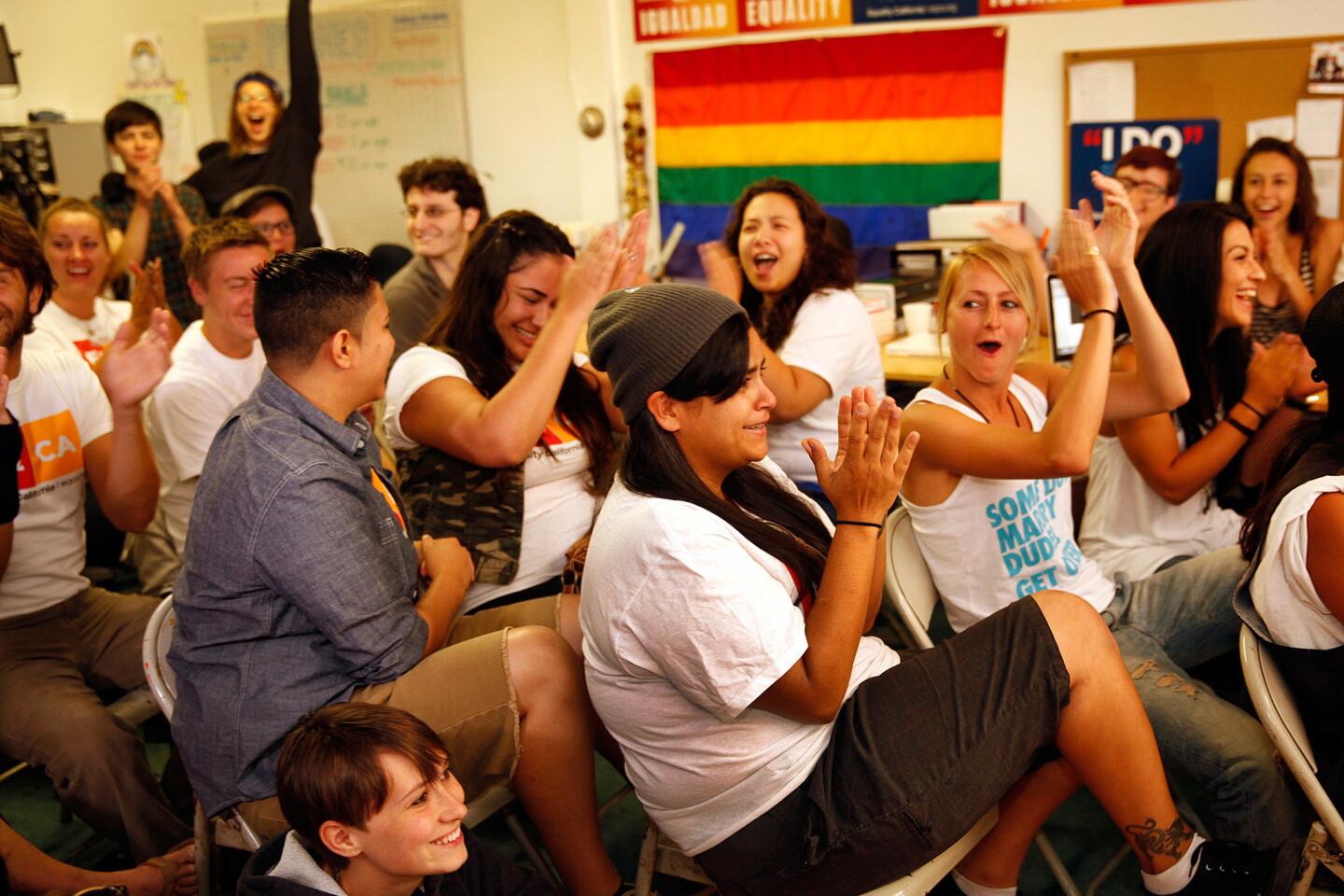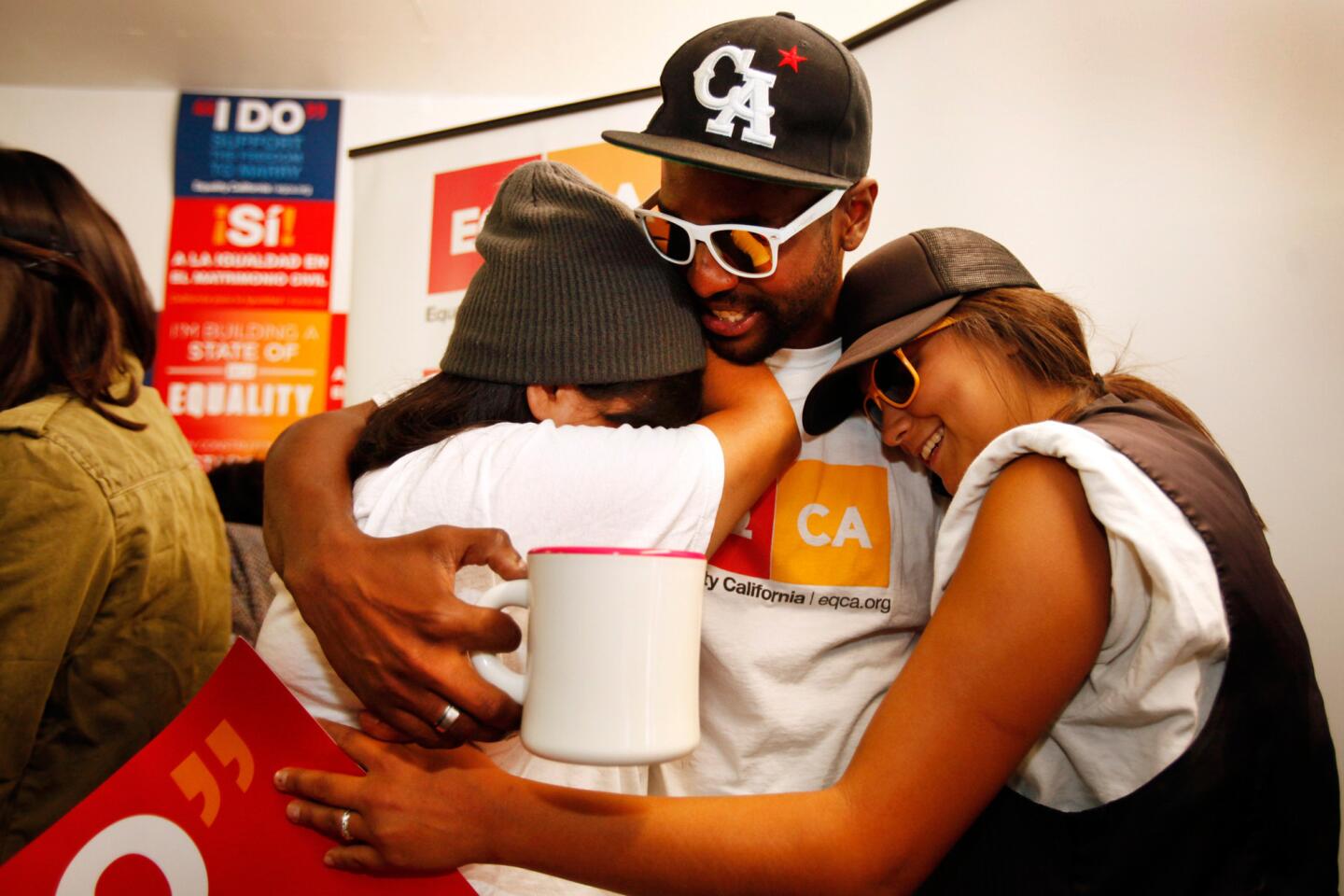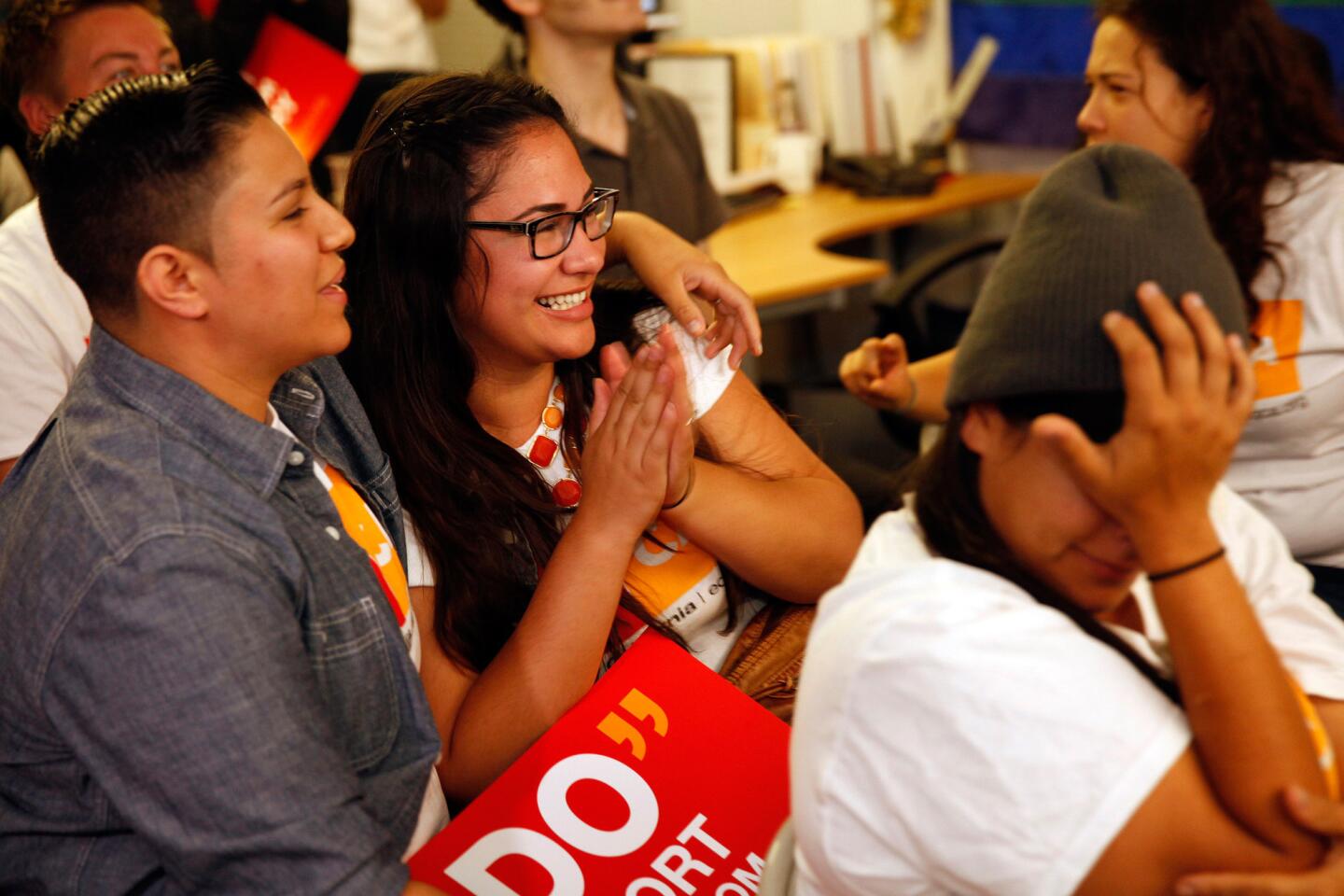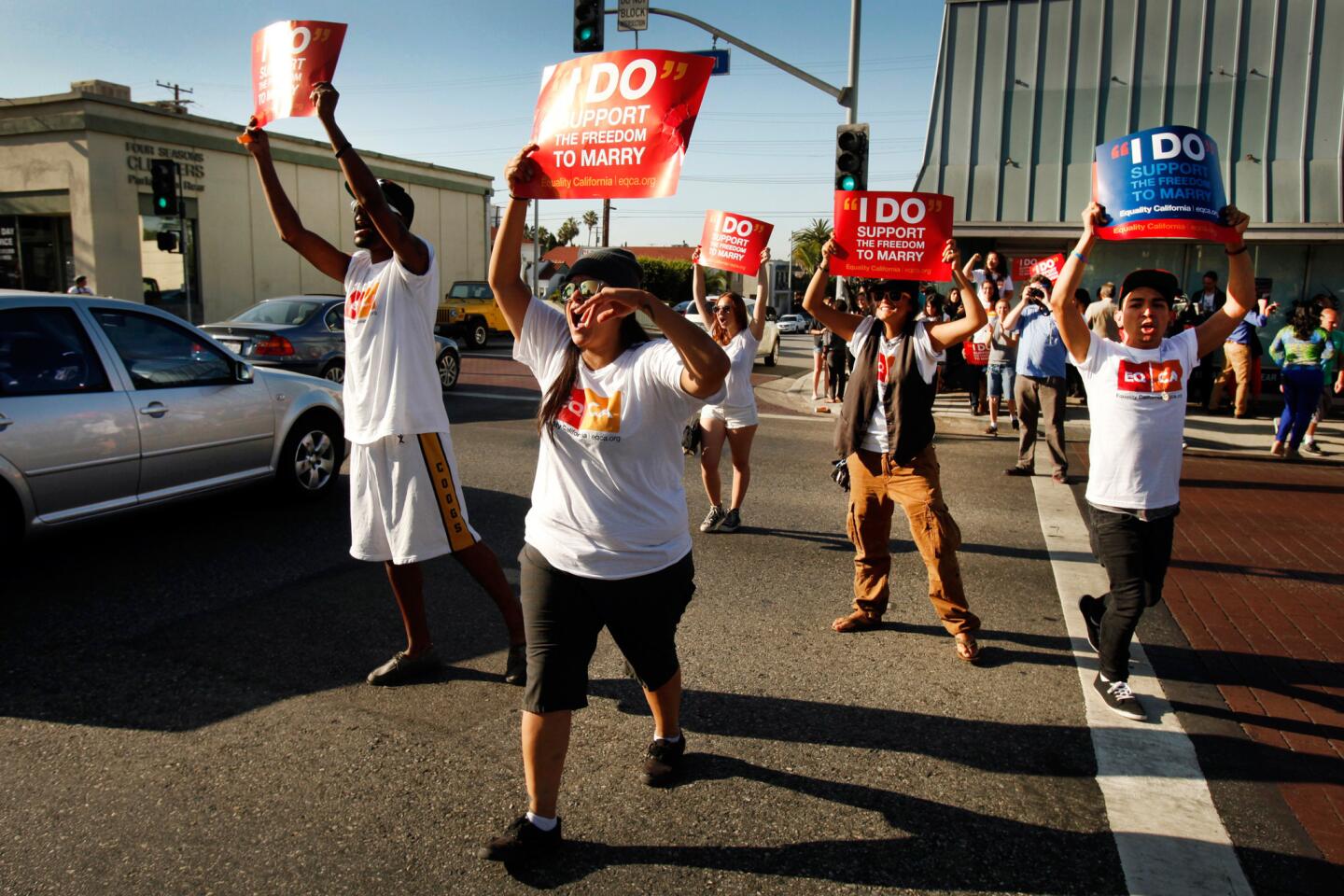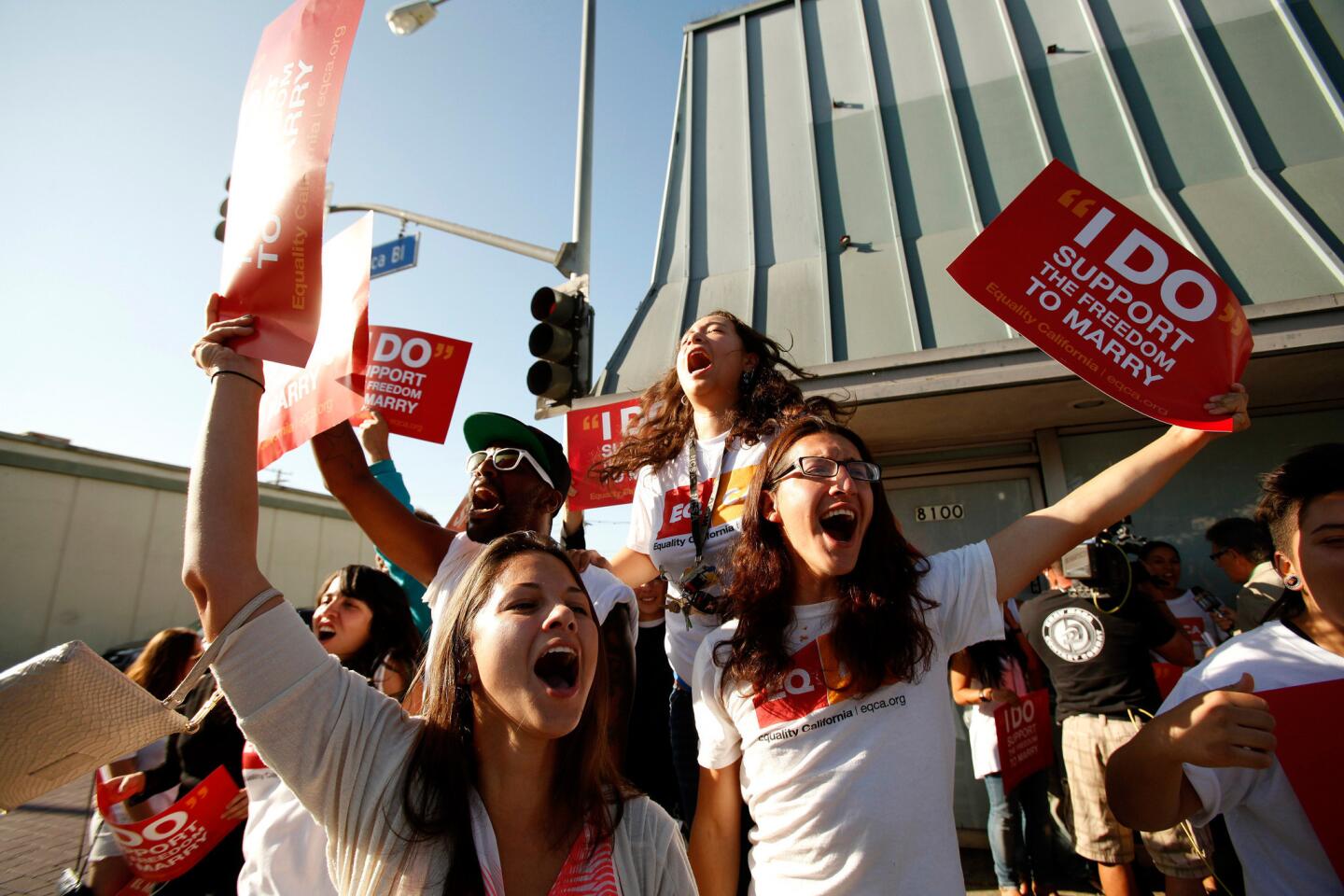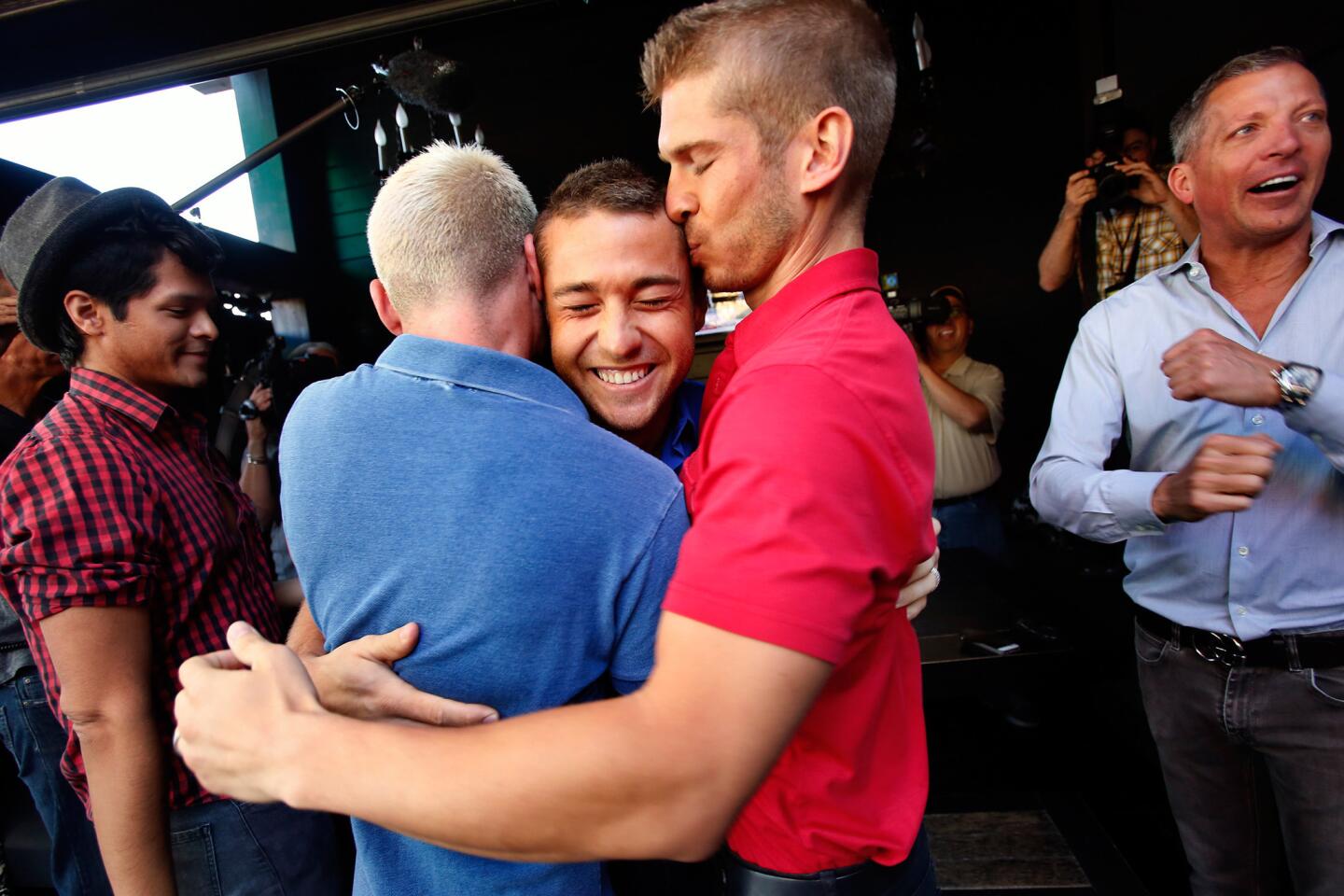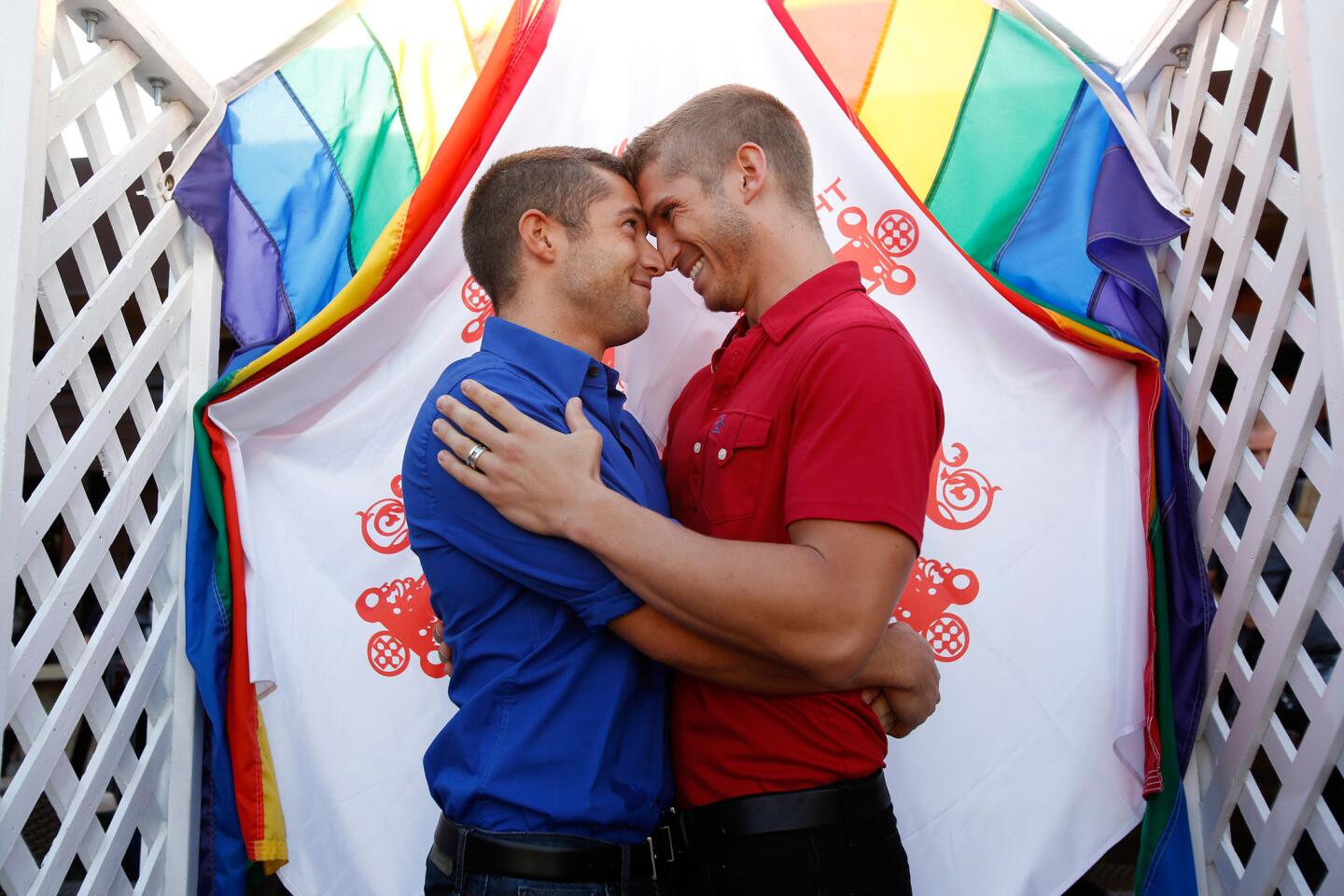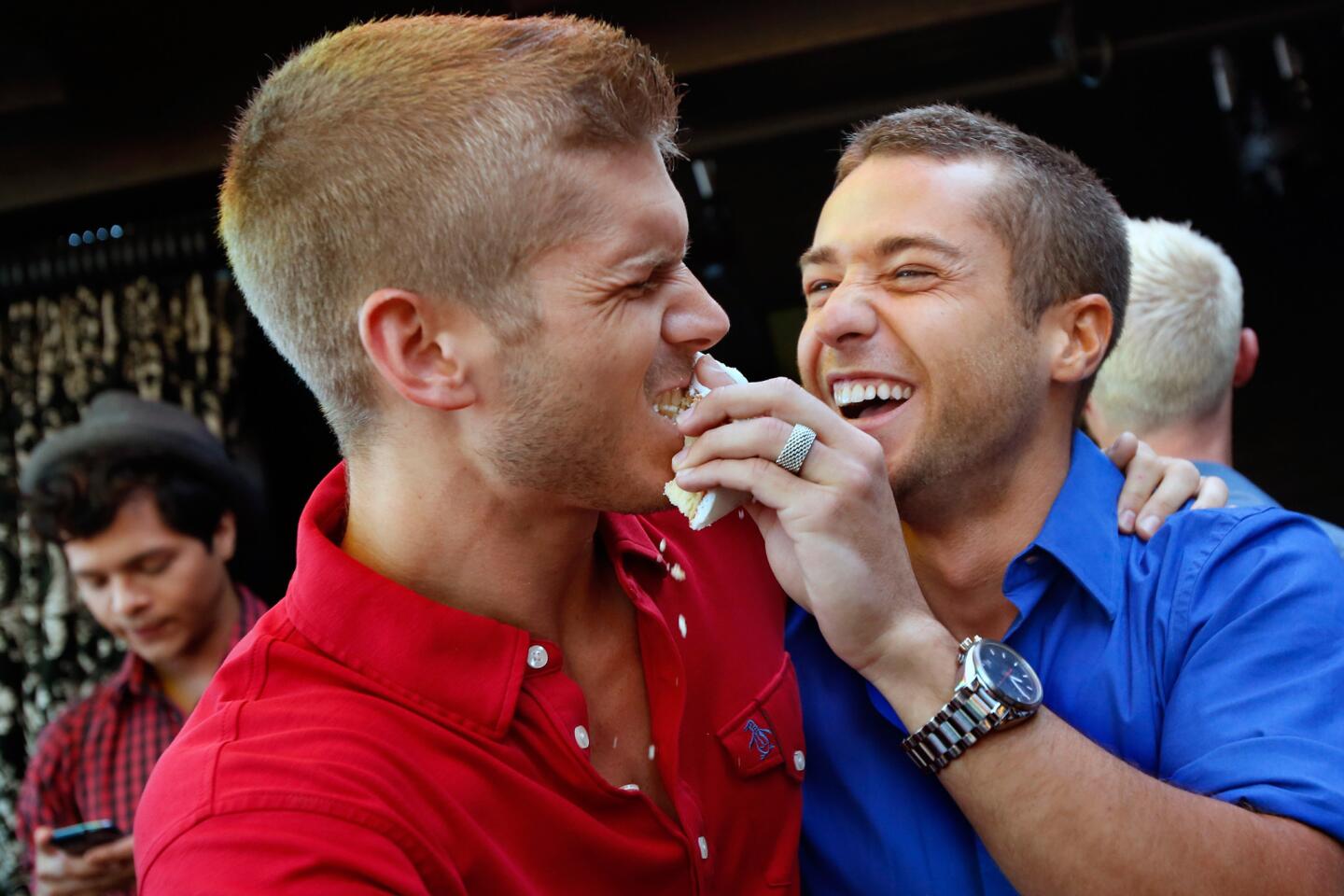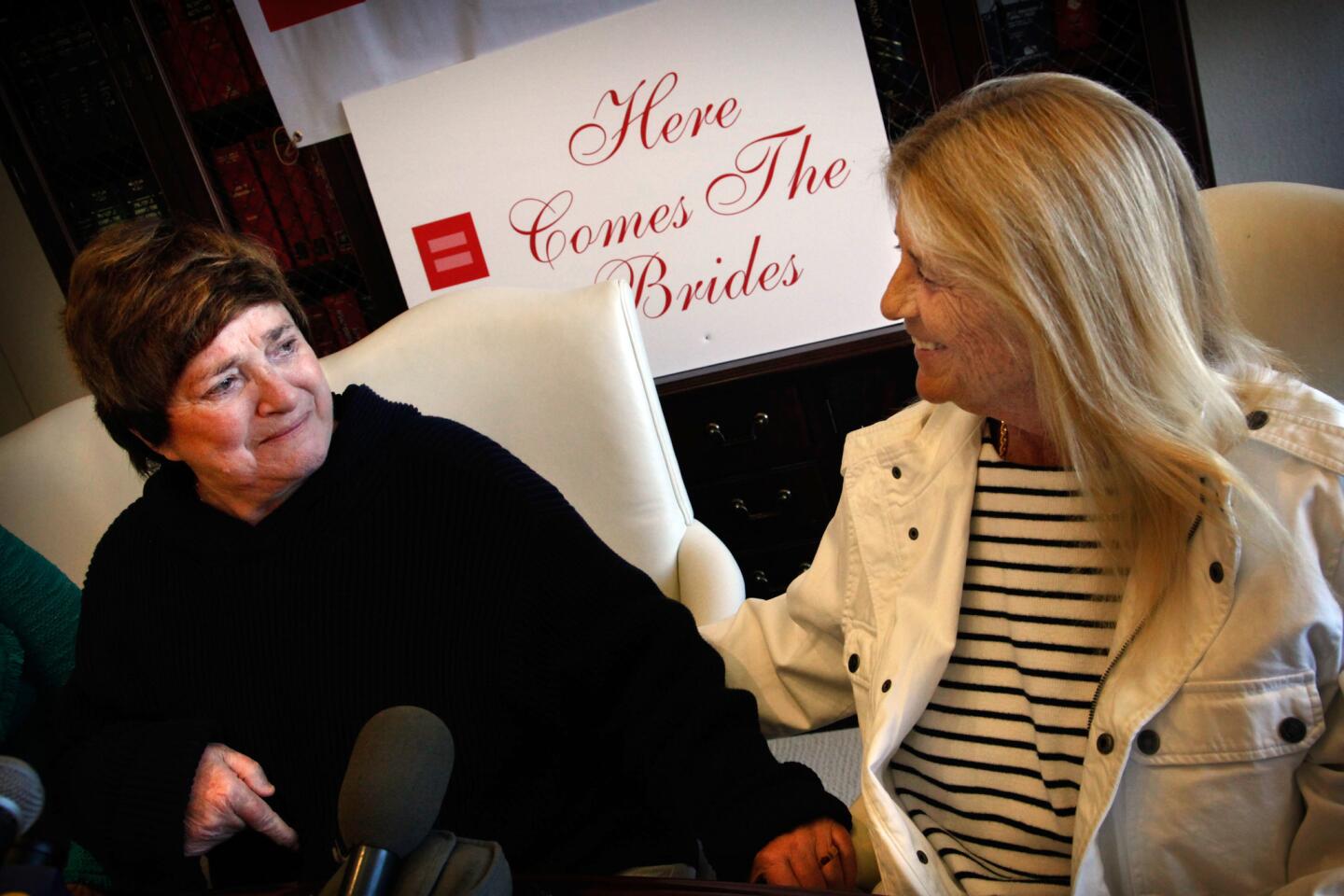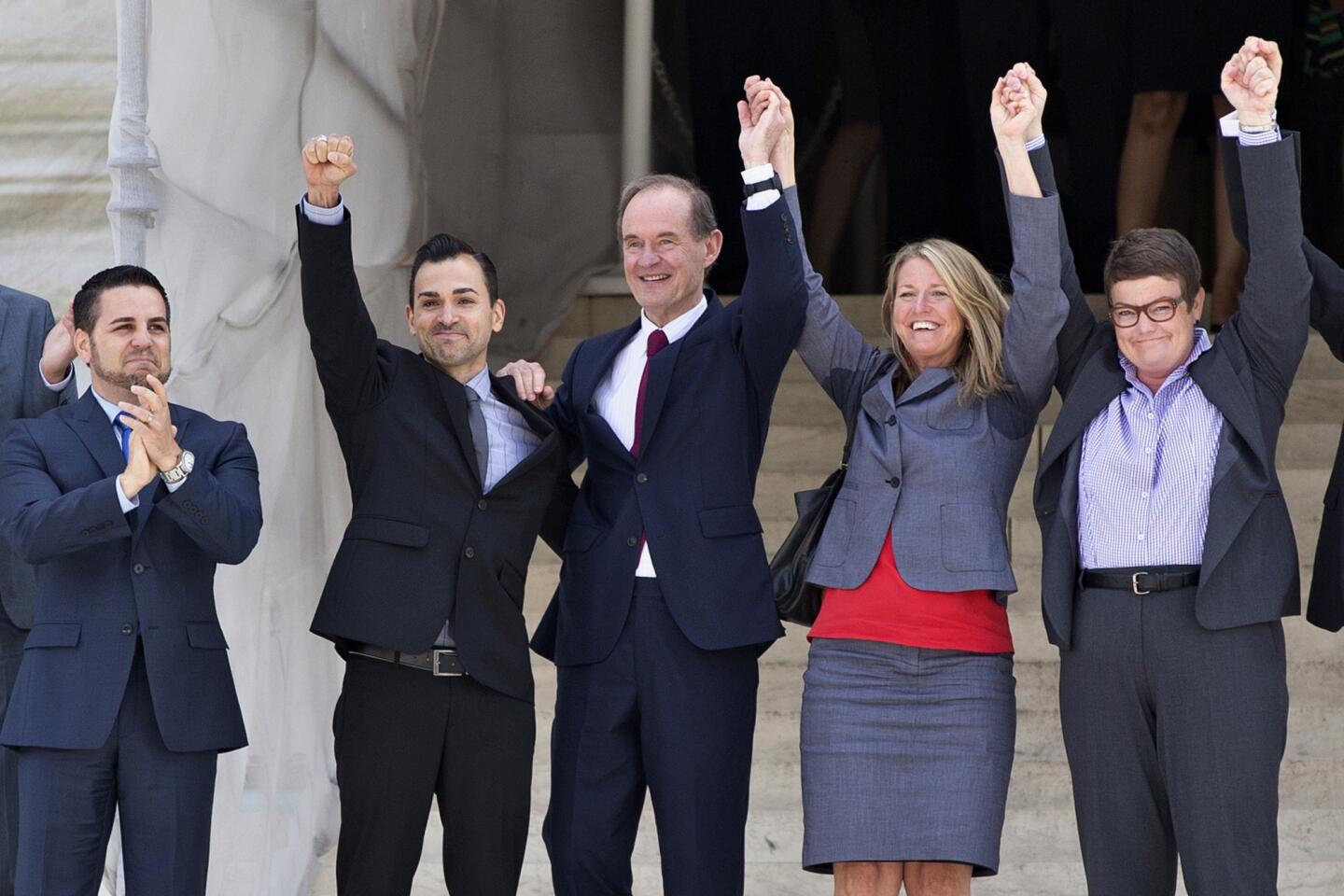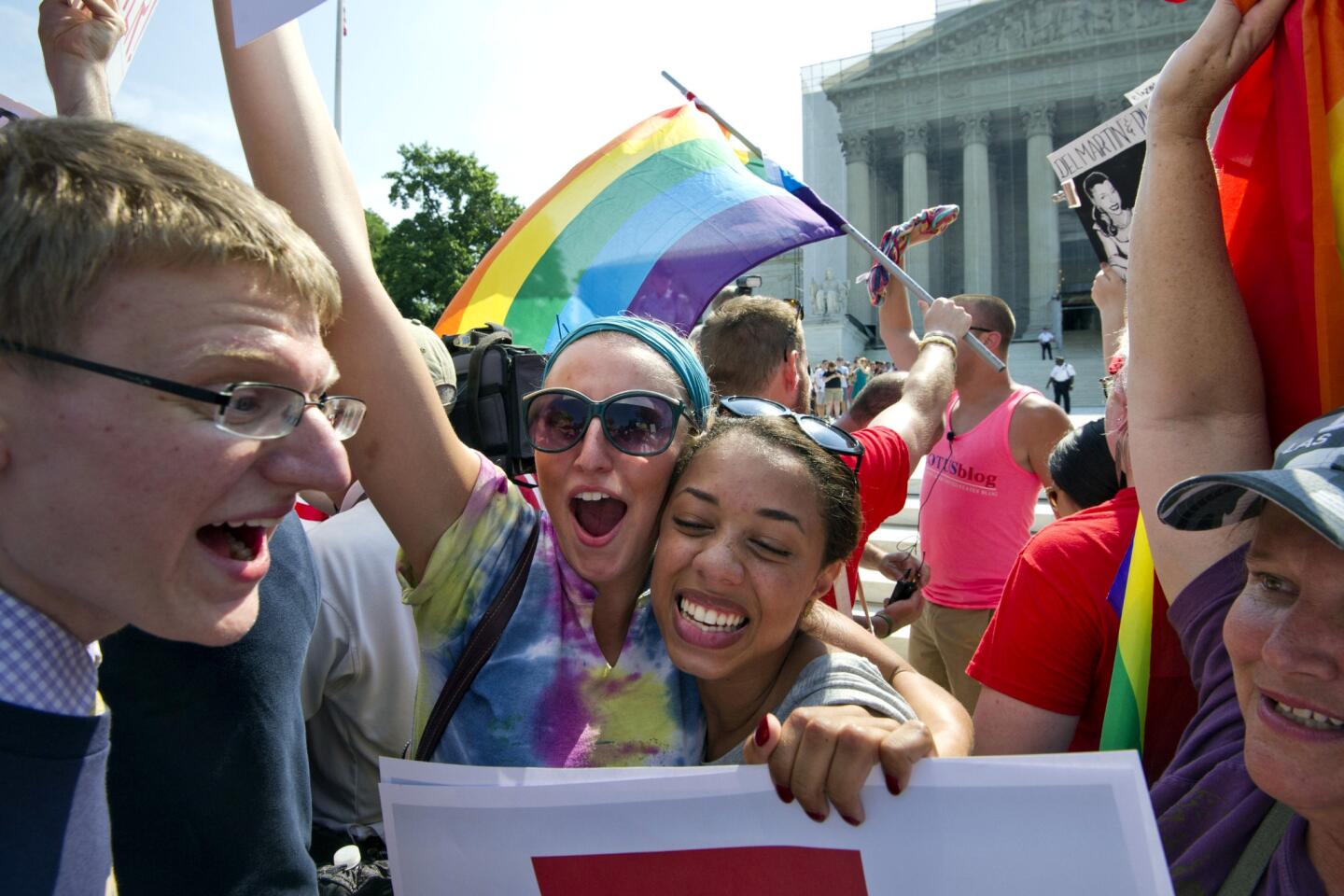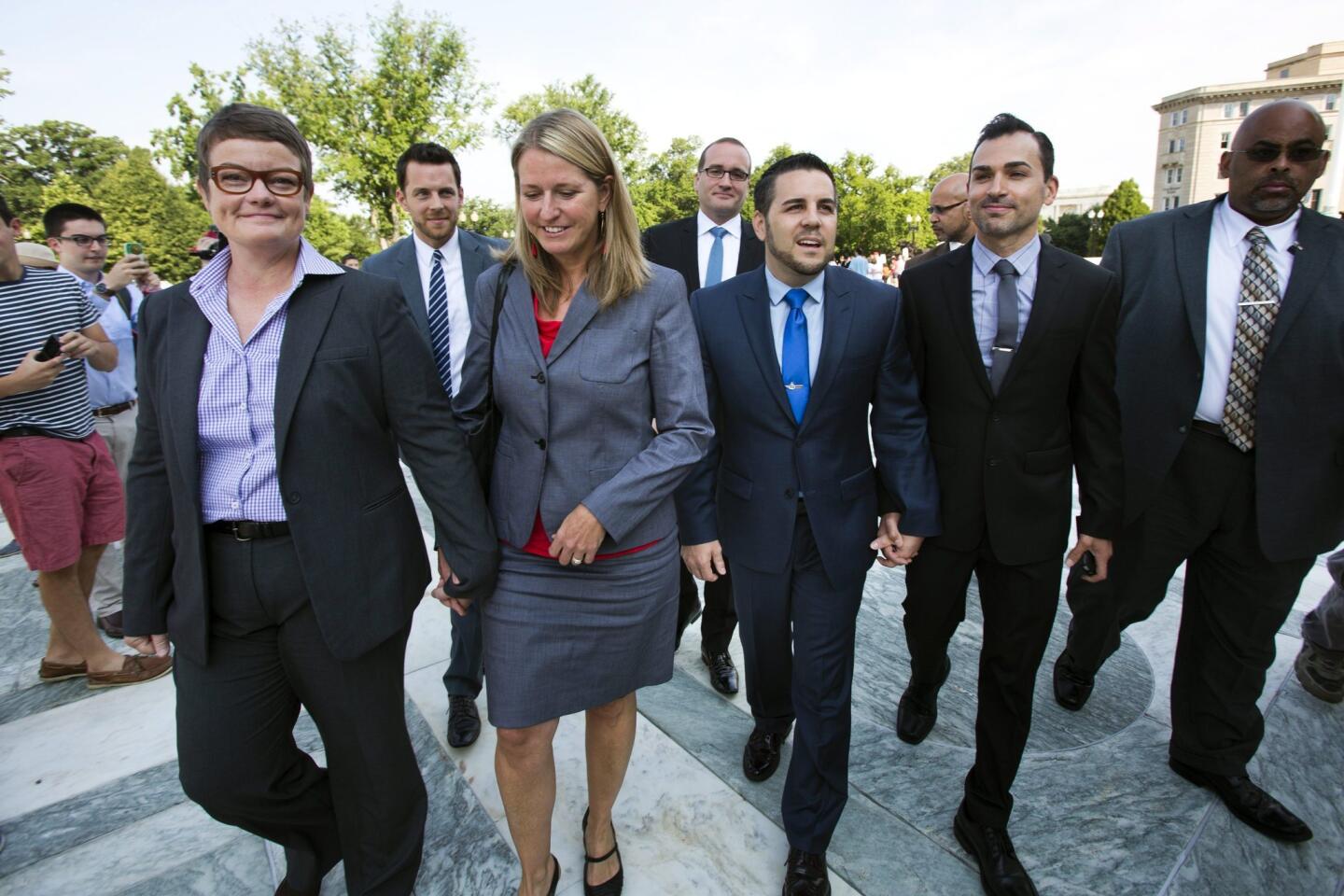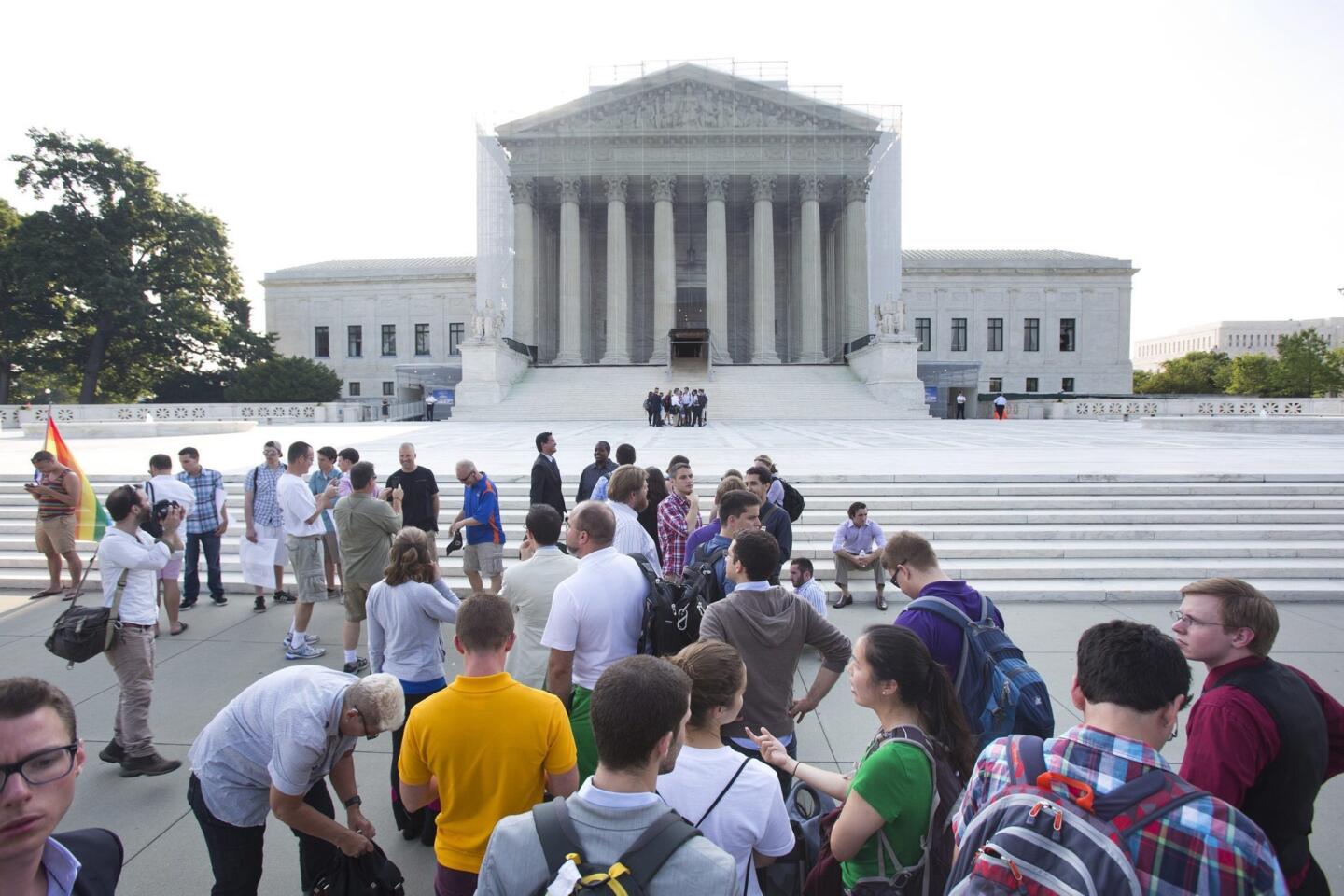Supreme Court gay marriage rulings: Historic step for equal rights
- Share via
There will be no “skim-milk marriages” in these United States.
That phrase, memorably coined by Justice Ruth Bader Ginsburg during arguments over the federal Defense of Marriage Act in March, perfectly summed up the discriminatory law that denied federal benefits to legally married gay couples, while providing them to couples in “full-fat” heterosexual marriages.
And while the court did not rule on whether same-sex marriage is a constitutional right -- either in the case of DOMA or California’s Proposition 8, which it sent back to California -- it definitely said if you are in one, the government does not have the right to deny you the same rights that married heterosexuals have.
Exactly 25 minutes after the Supreme Court struck down the 1996 law on a 5-4 vote, a commenter named Mary posted perhaps the simplest, yet most important question of the morning on Scotusblog, the go-to source for live court coverage.
“So does this mean that I’ll be able to file joint taxes with my wife?” asked Mary.
“Yes,” replied Scotusblog legal analyst Amy Howe, as 321,582 readers looked on. “Perhaps for the first time ever, many people will be eager to file their taxes next April 15.”
Edith Windsor, the New York woman who brought the case against DOMA, will now be entitled to a big fat refund of the $363,053 she was forced to pay in federal estate taxes after her wife, Thea Spyer, died in 2009. I hope the feds have to pay interest. Actually, I think it would be nice if the money came out of the deep pockets of Bill Clinton, the president who signed the odious measure into law.
In its momentous decision, the court said the federal government cannot undermine the states on an institution the states have always regulated: marriage.
“The state’s decision to give this class of persons the right to marry conferred upon them a dignity and status of immense import,” wrote Justice Anthony Kennedy in his majority opinion. “But the federal government uses the state-defined class for the opposite purpose — to impose restrictions and disabilities.”
DOMA, he wrote, seeks “to injure” gay married couples, he wrote, and thus “violates basic due process and equal protection principles applicable to the federal government.”
The desire of Congress to “harm a politically unpopular group,” he wrote, “cannot justify disparate treatment of that group.”
In its discussion of the case, the court offered the marriage of Windsor and Spyer as a symbol of how the country’s attitudes on same-sex marriage have evolved, even gently acknowledging the threat that many same-sex opponents felt:
“When at first Windsor and Spyer longed to marry, neither New York nor any other state granted them that right. After waiting some years, in 2007 they traveled to Ontario to be married there. It seems fair to conclude that, until recent years, many citizens had not even considered the possibility that two persons of the same sex might aspire to occupy the same status and dignity as that of a man and woman in lawful marriage.
“For marriage between a man and a woman no doubt had been thought of by most people as essential to the very definition of that term and to its role and function throughout the history of civilization. That belief, for many who long have held it, became even more urgent, more cherished when challenged. For others, however, came the beginnings of a new perspective, a new insight.”
Naturally, I had to see what kind of fit Justice Antonin Scalia had.
In a long-winded dissent, he chastised the court for inserting itself into the matter in the first place, decrying its “black-robed supremacy.” (Funny: when he voted to gut the 1965 Voting Rights Act, overriding Congress, which had reauthorized it in 2006 almost unanimously, the notion of the “black-robed supremacy” never came up.)
He reserves some of his greatest ire for the idea DOMA was motivated by a desire to “harm.”
“…The Constitution neither requires nor forbids our society to approve of same-sex marriage, much as it neither requires nor forbids us to approve of no-fault divorce, polygamy, or the consumption of alcohol.”
Well, true. But his comments seem to presage something the Supreme Court will eventually have to face: whether same-sex marriage is in fact a constitutional right.
“My guess is that the majority … needs some rhetorical basis to support its pretense that today’s prohibition of laws excluding same-sex marriage is confined to the federal government (leaving the second, state-law shoe to be dropped later, maybe next term). But I am only guessing.”
And for those of us who believe that gay marriage is a basic civil right, we can only hope.
ALSO:
Prince Jackson expected to testify about father’s final hours
Prop. 8: ‘This is far from over,’ says law prof who supported ban
Prop 8: Gov. Brown calls for gay marriages to resume, may take weeks
Twitter: @robinabcarian
More to Read
Sign up for Essential California
The most important California stories and recommendations in your inbox every morning.
You may occasionally receive promotional content from the Los Angeles Times.
